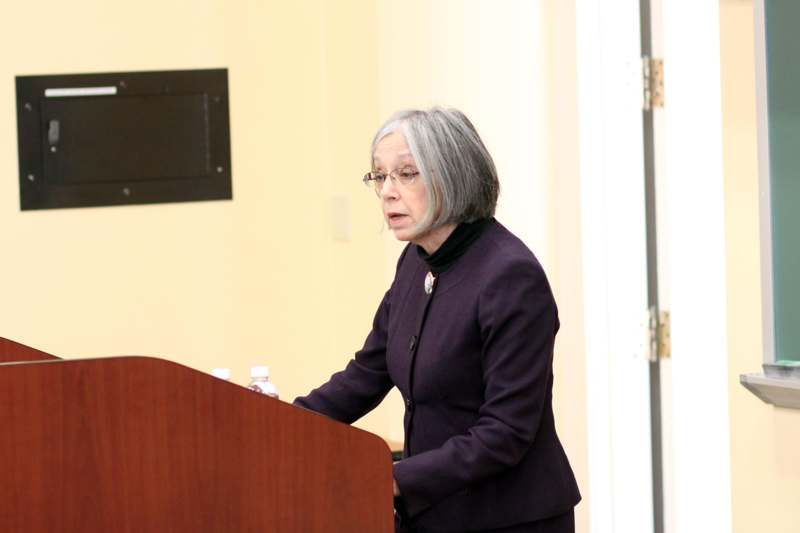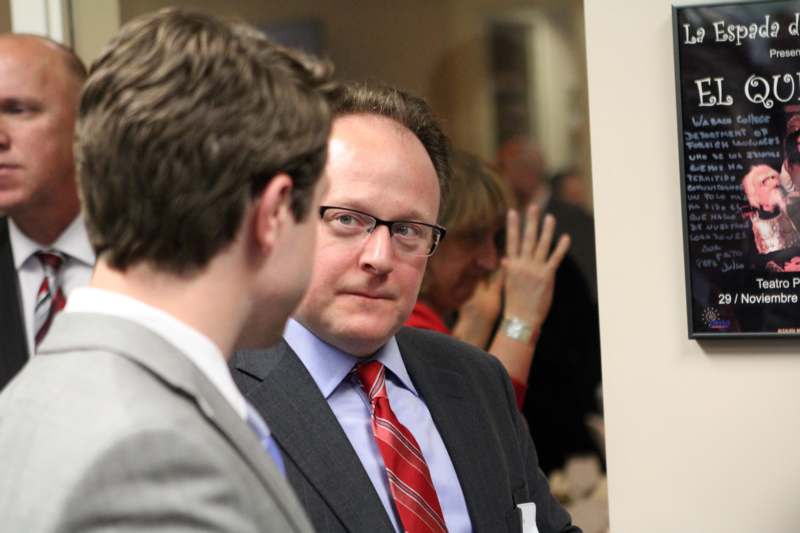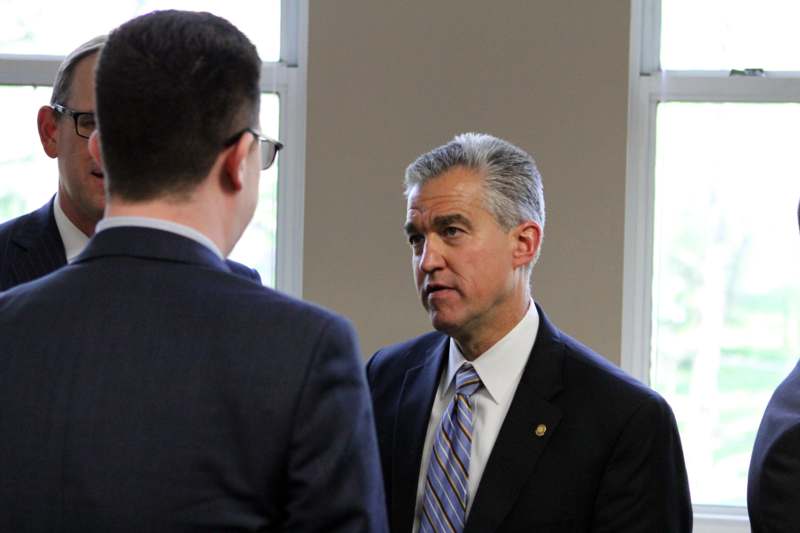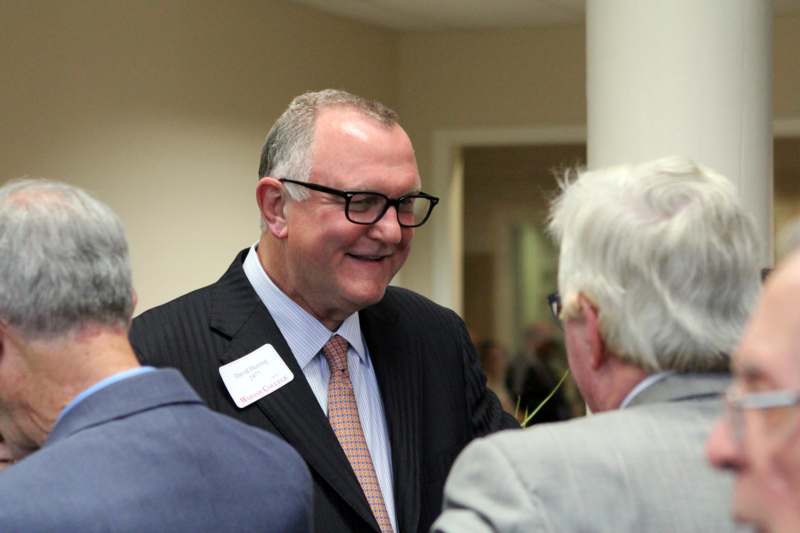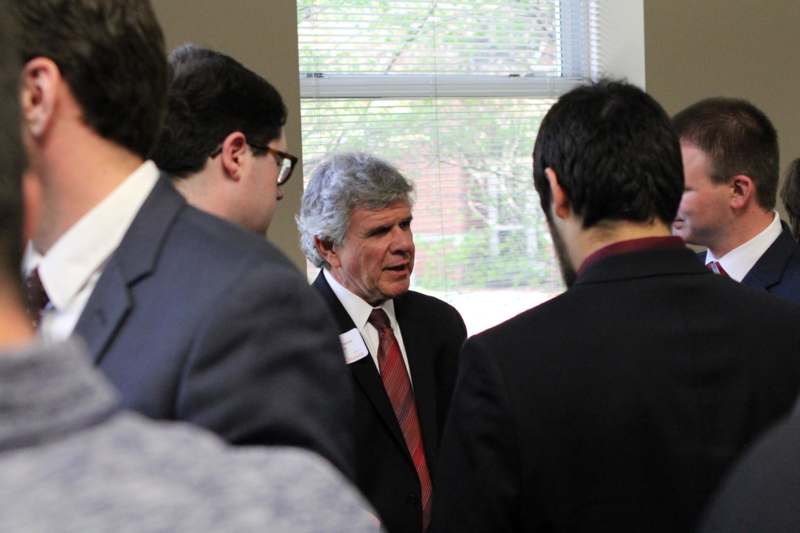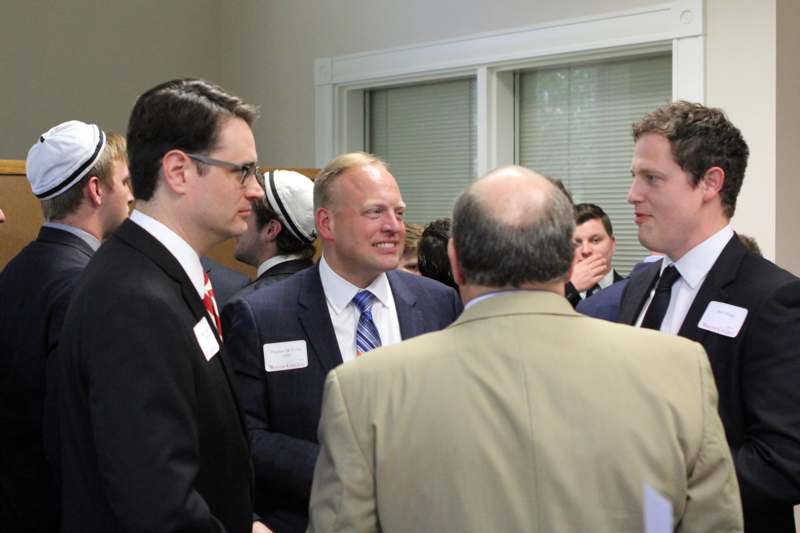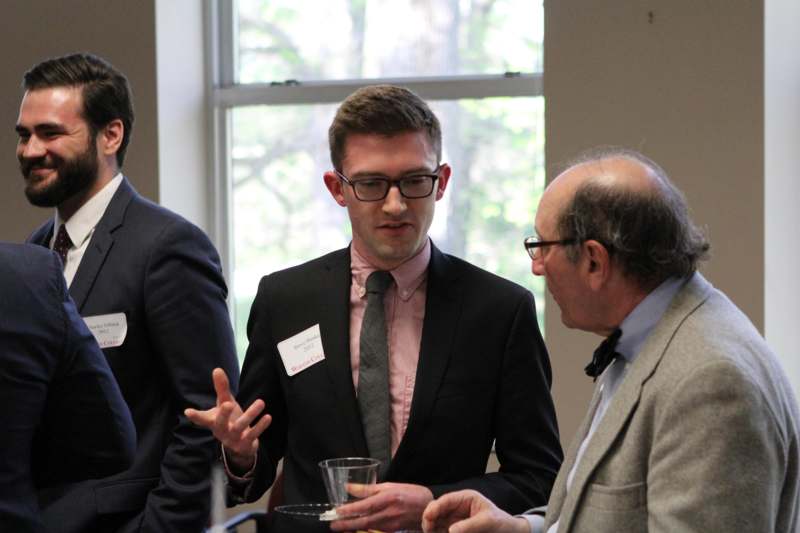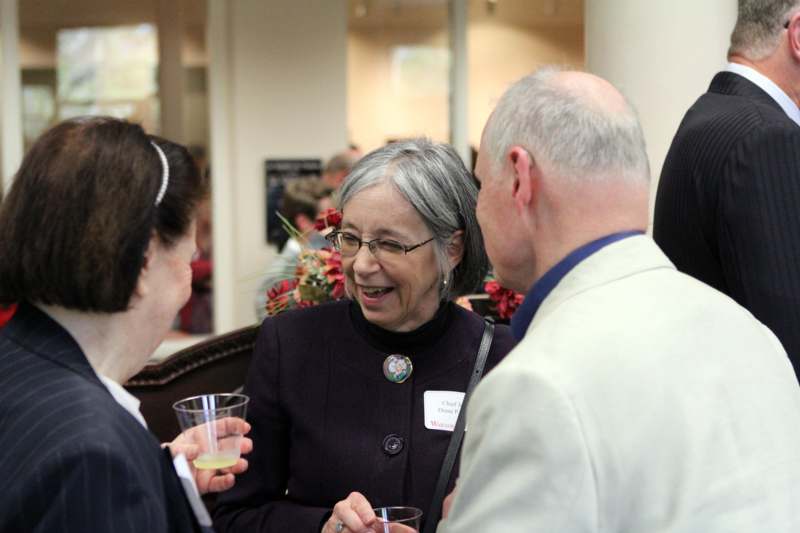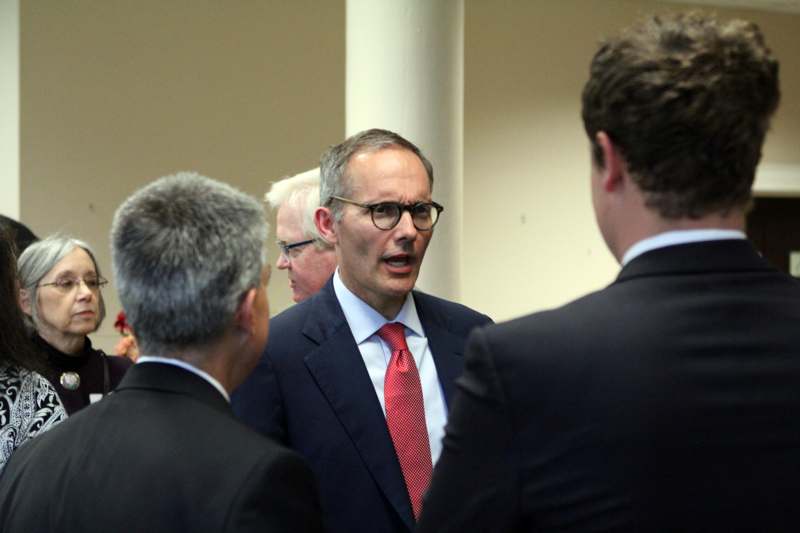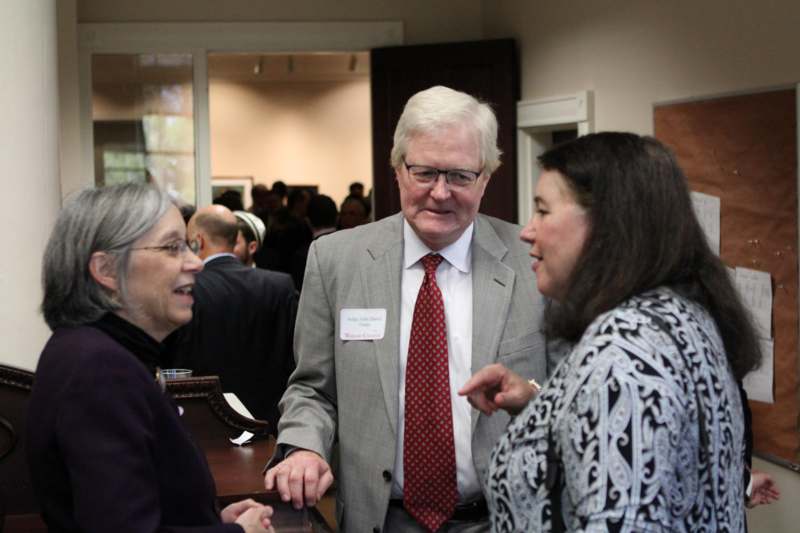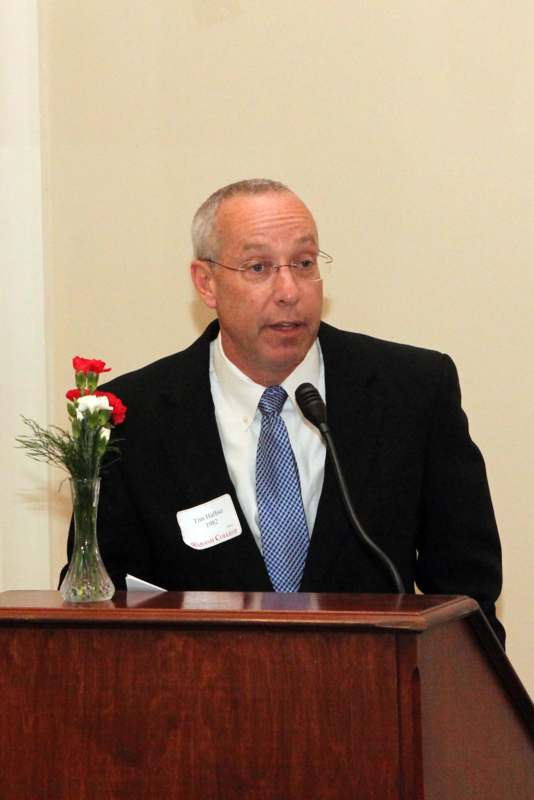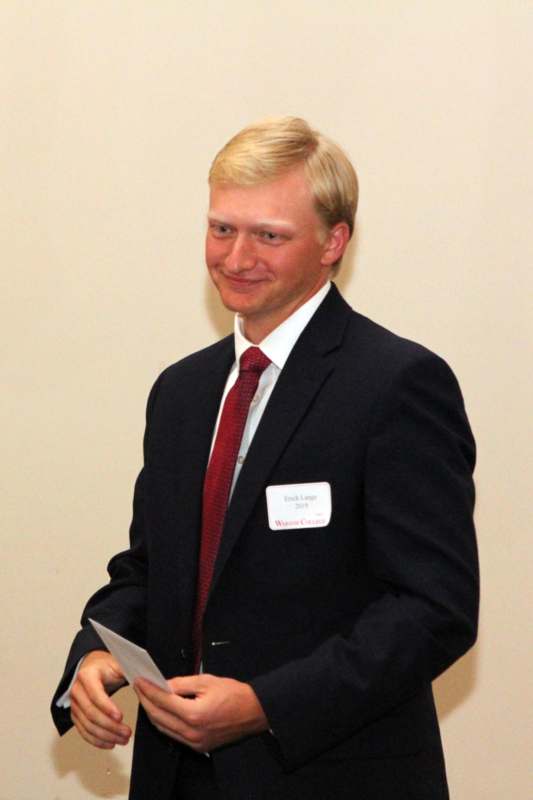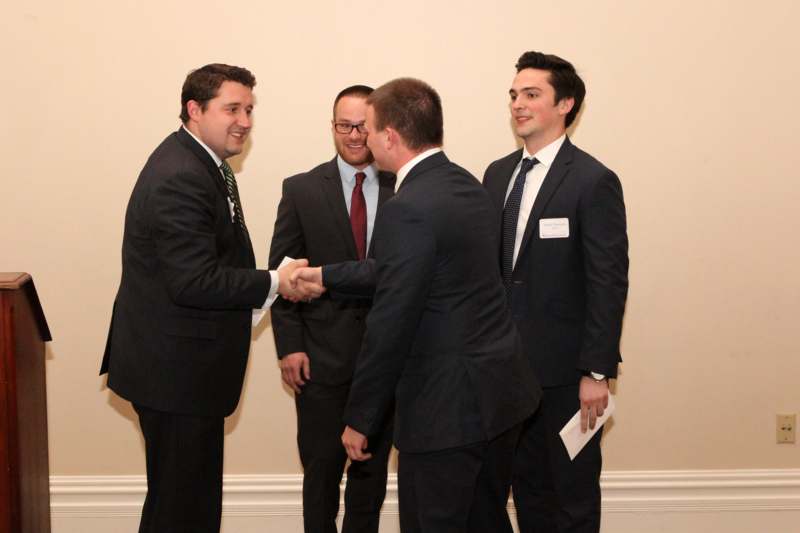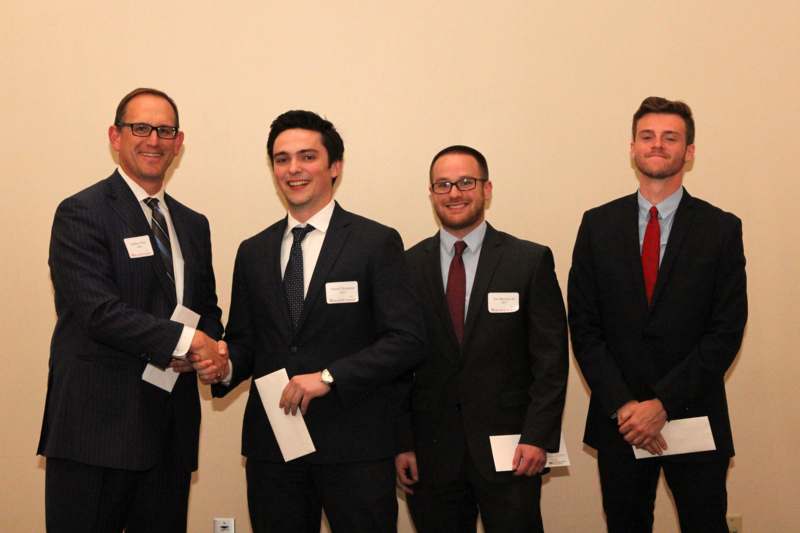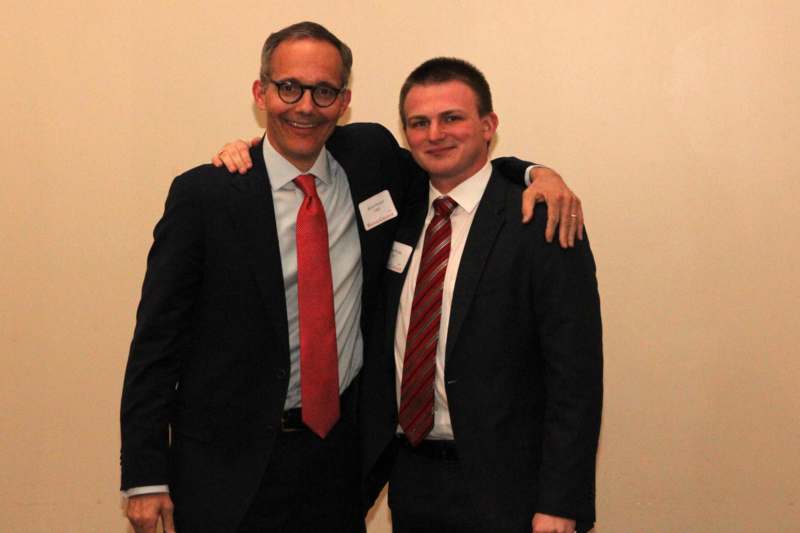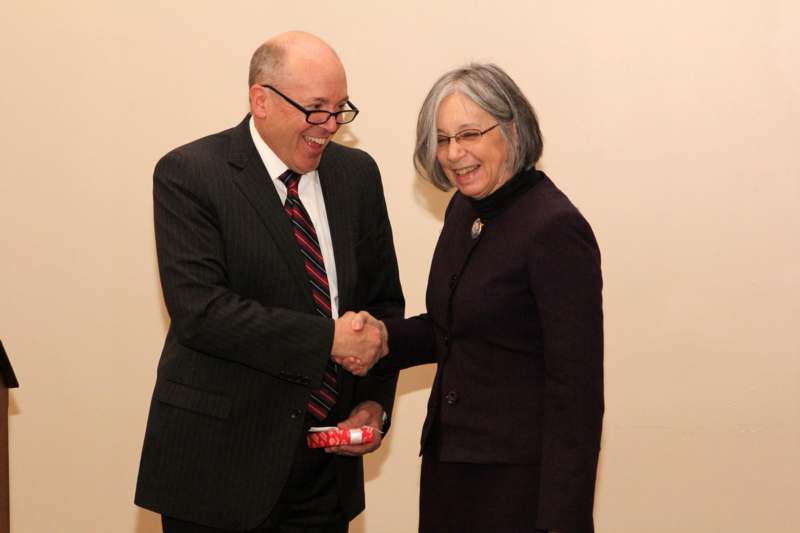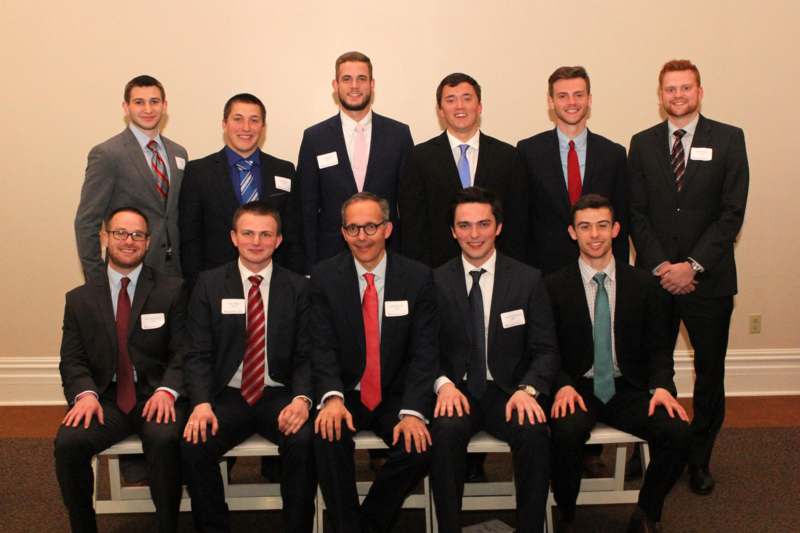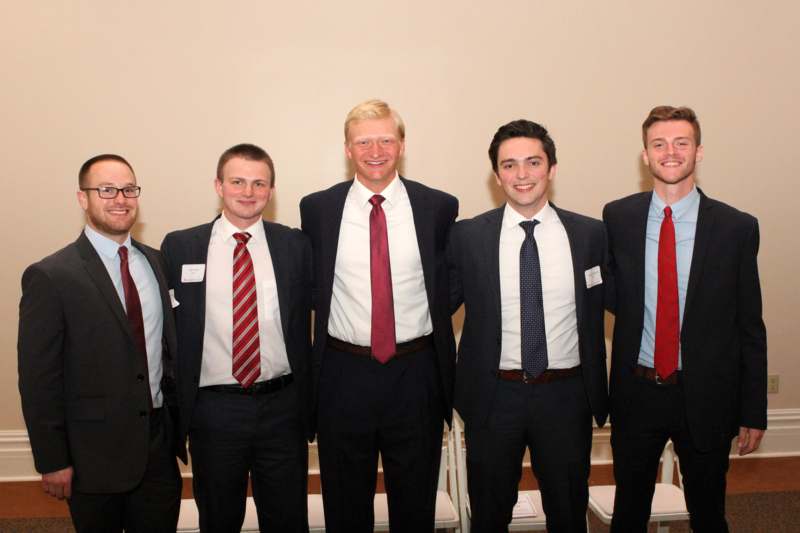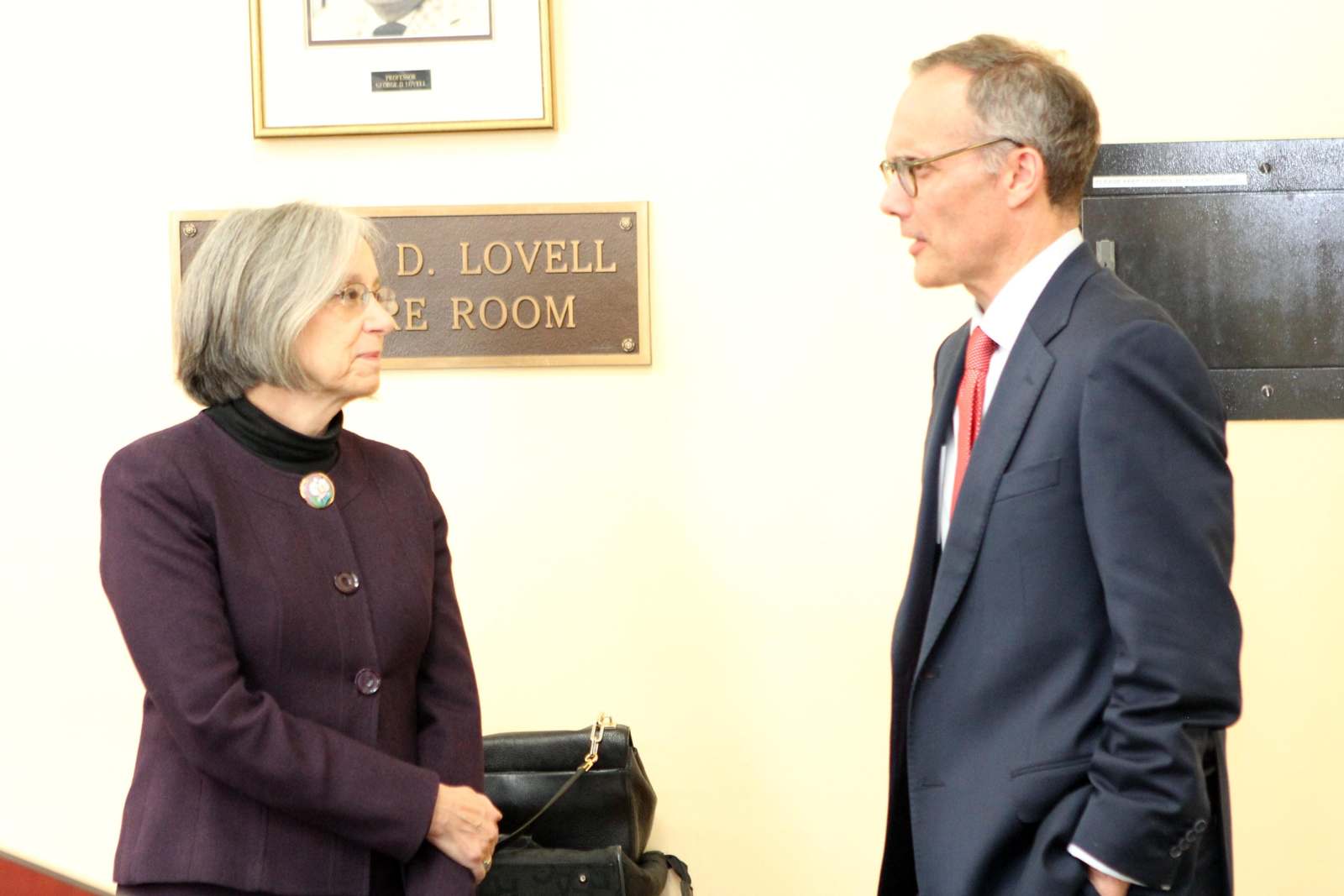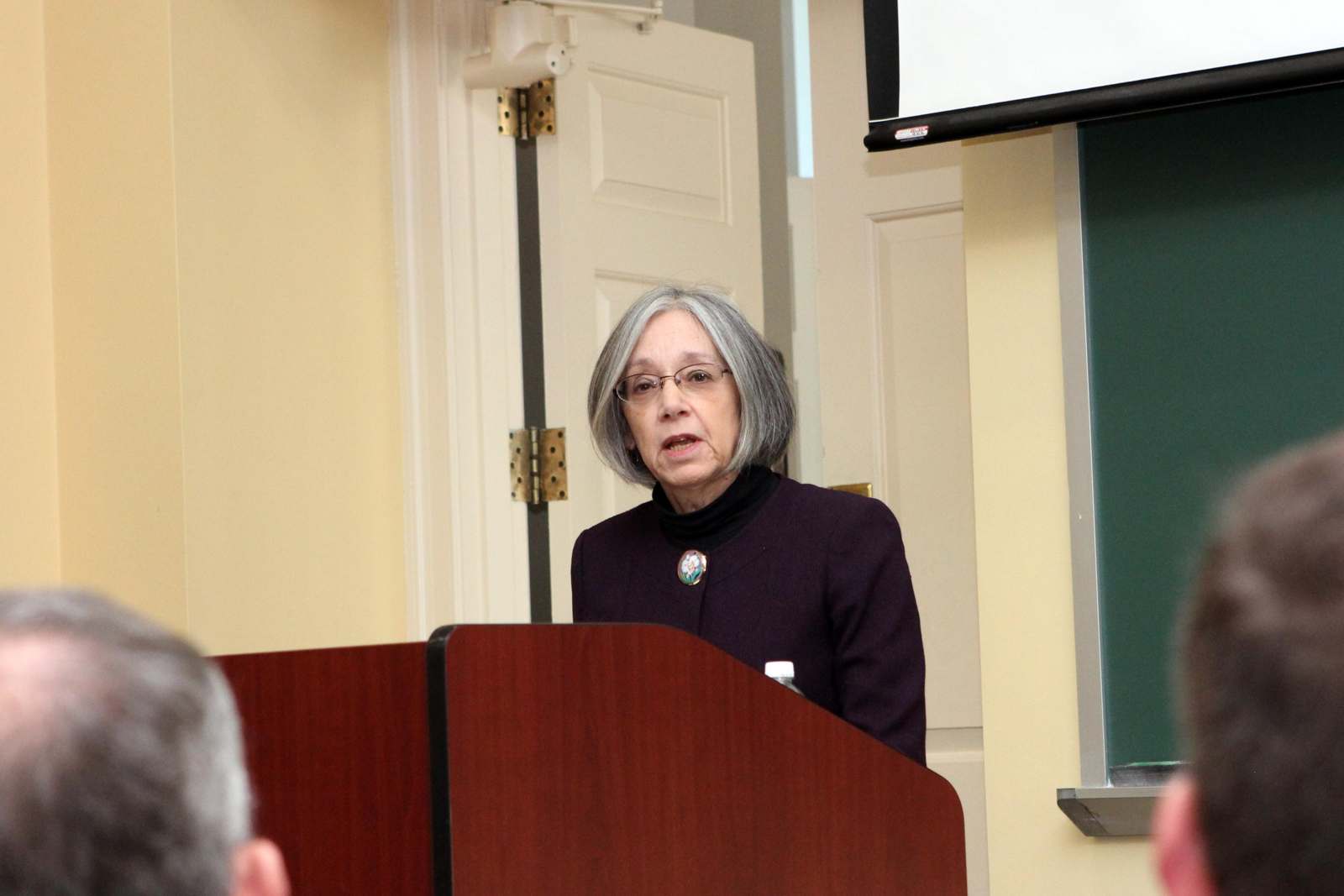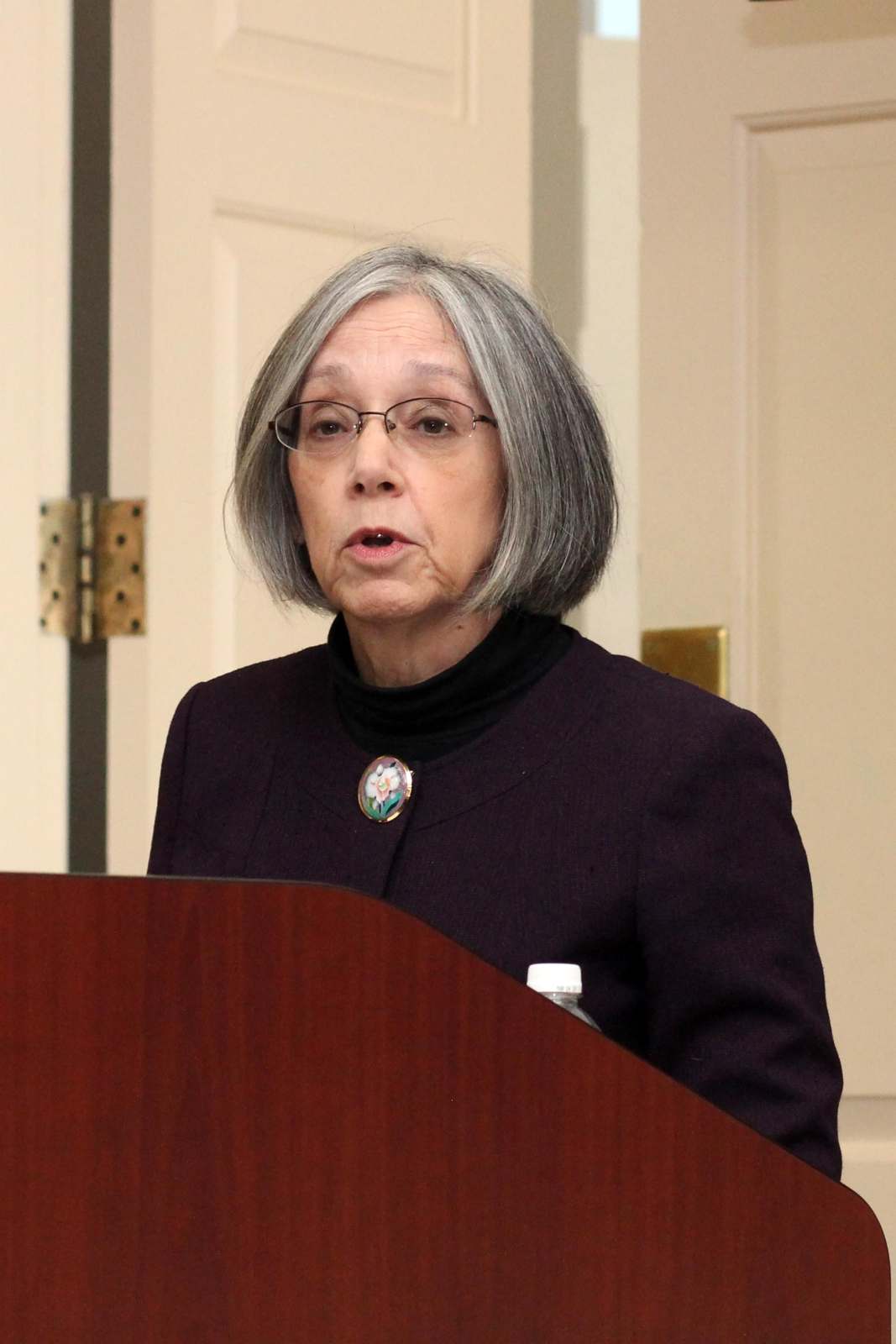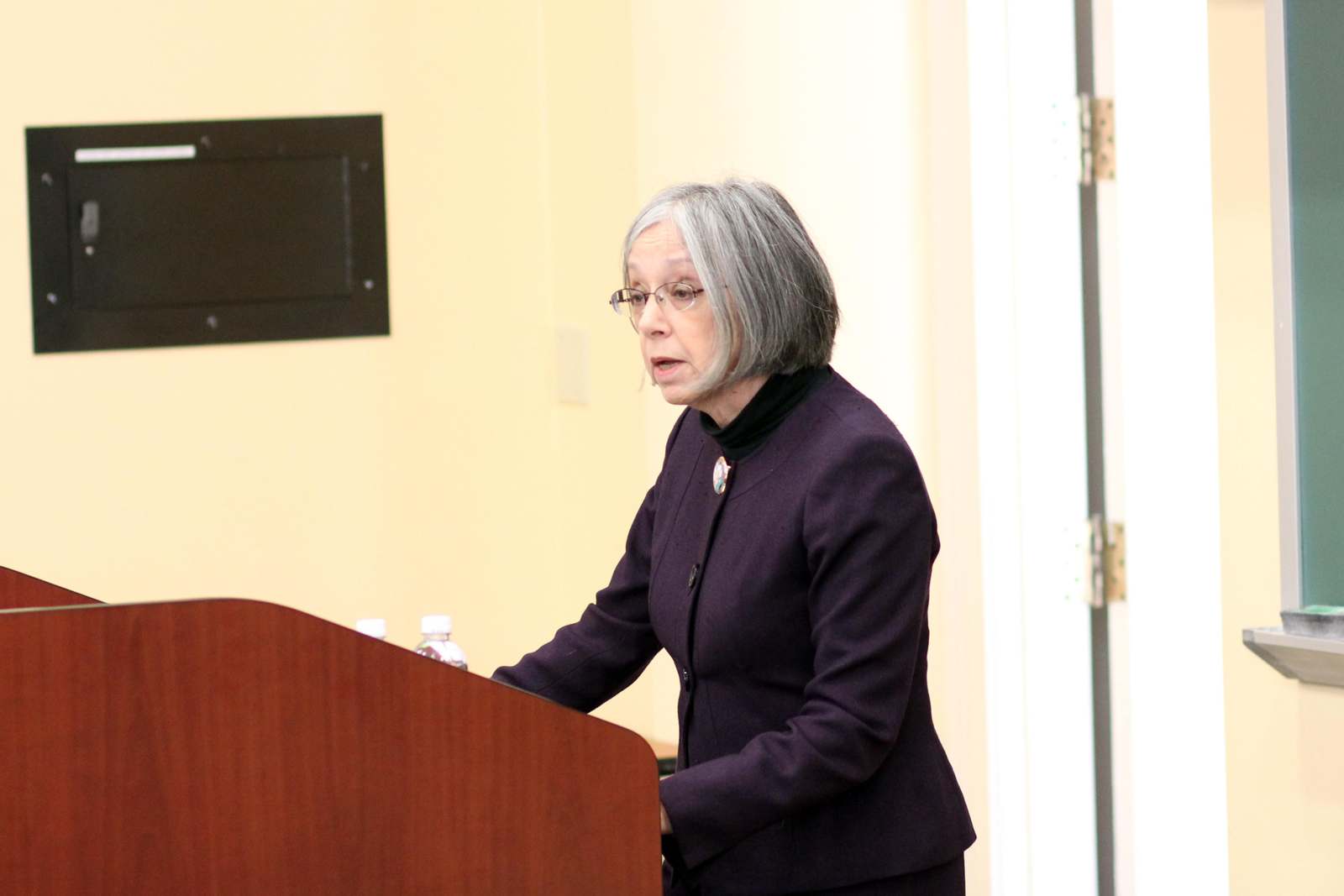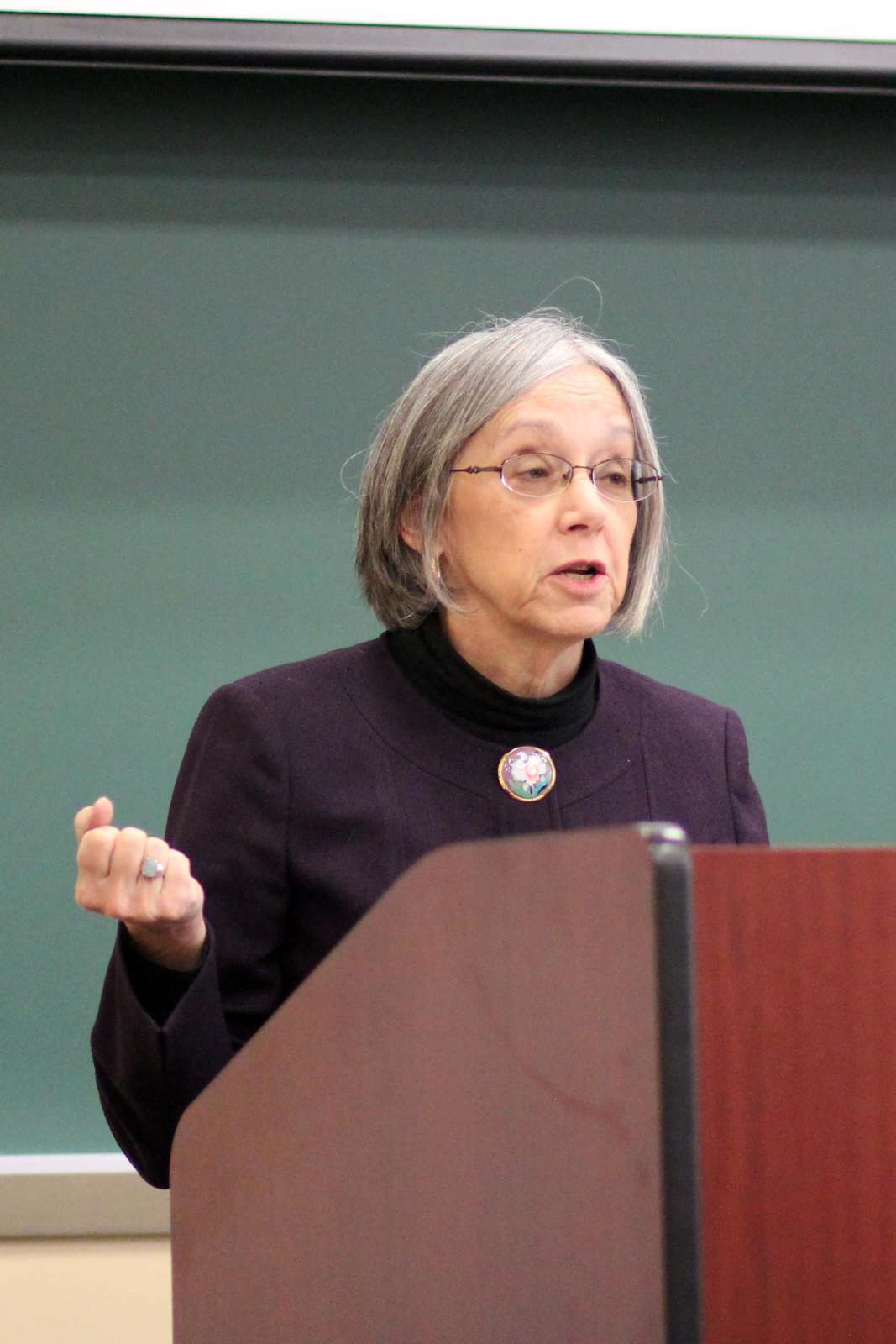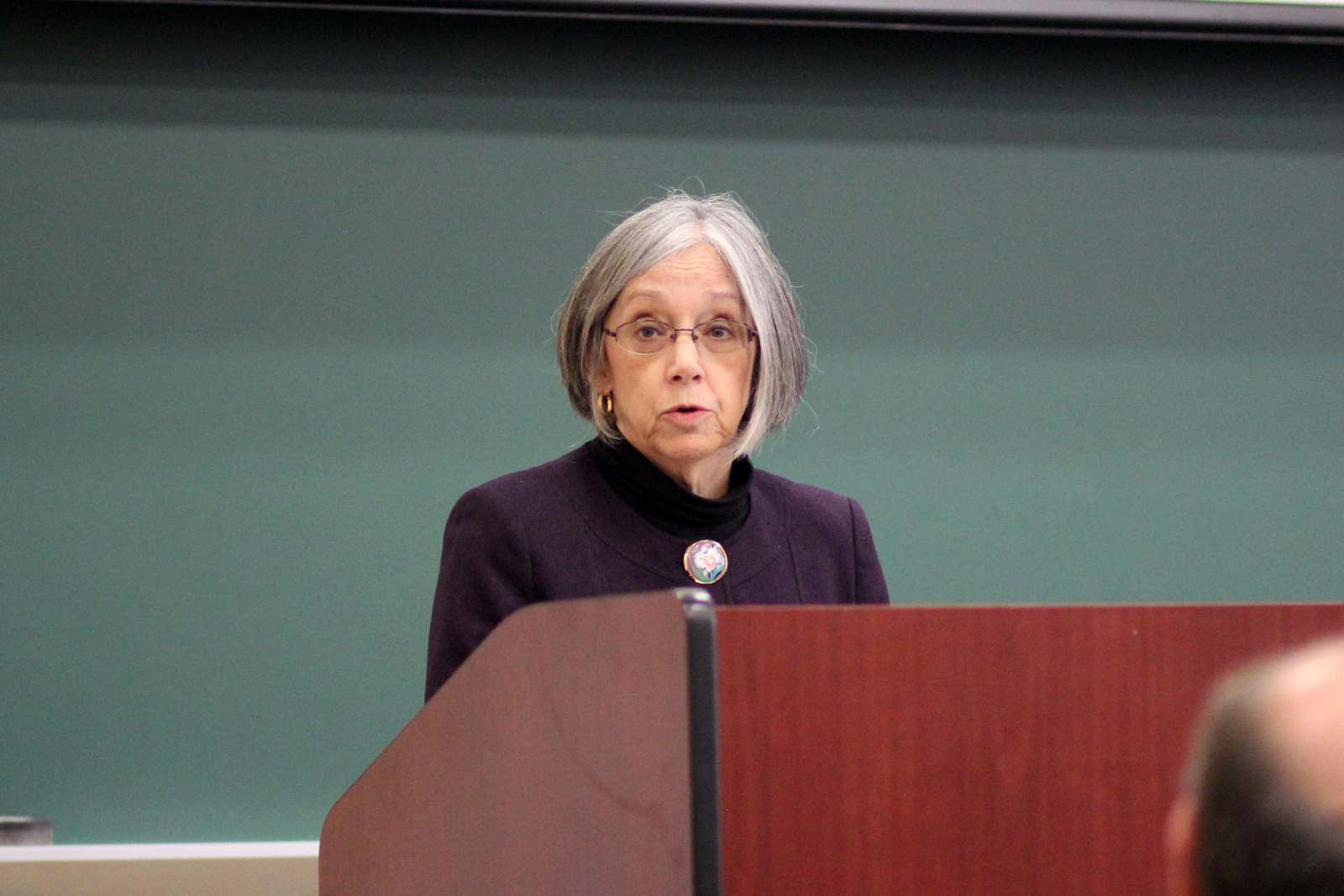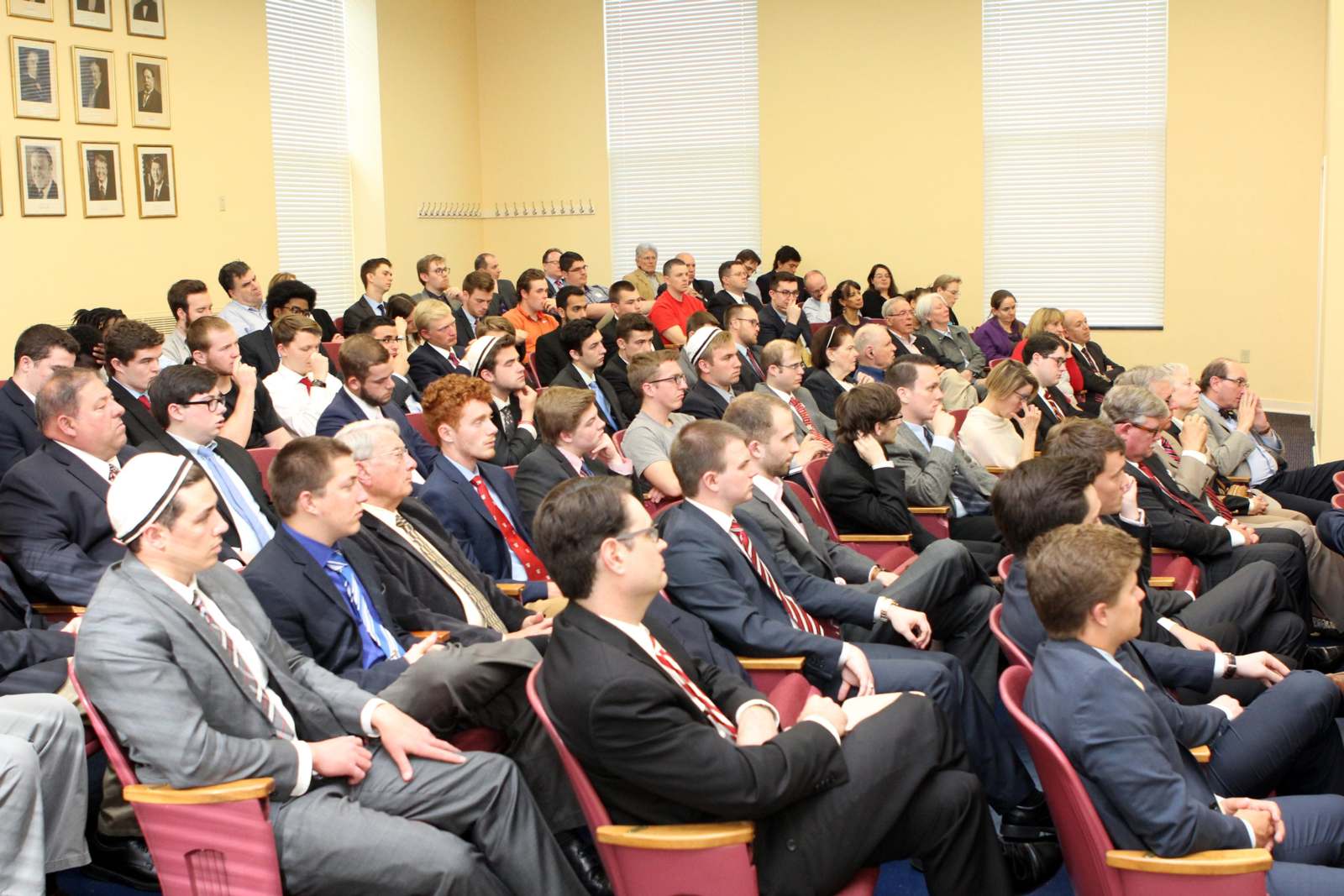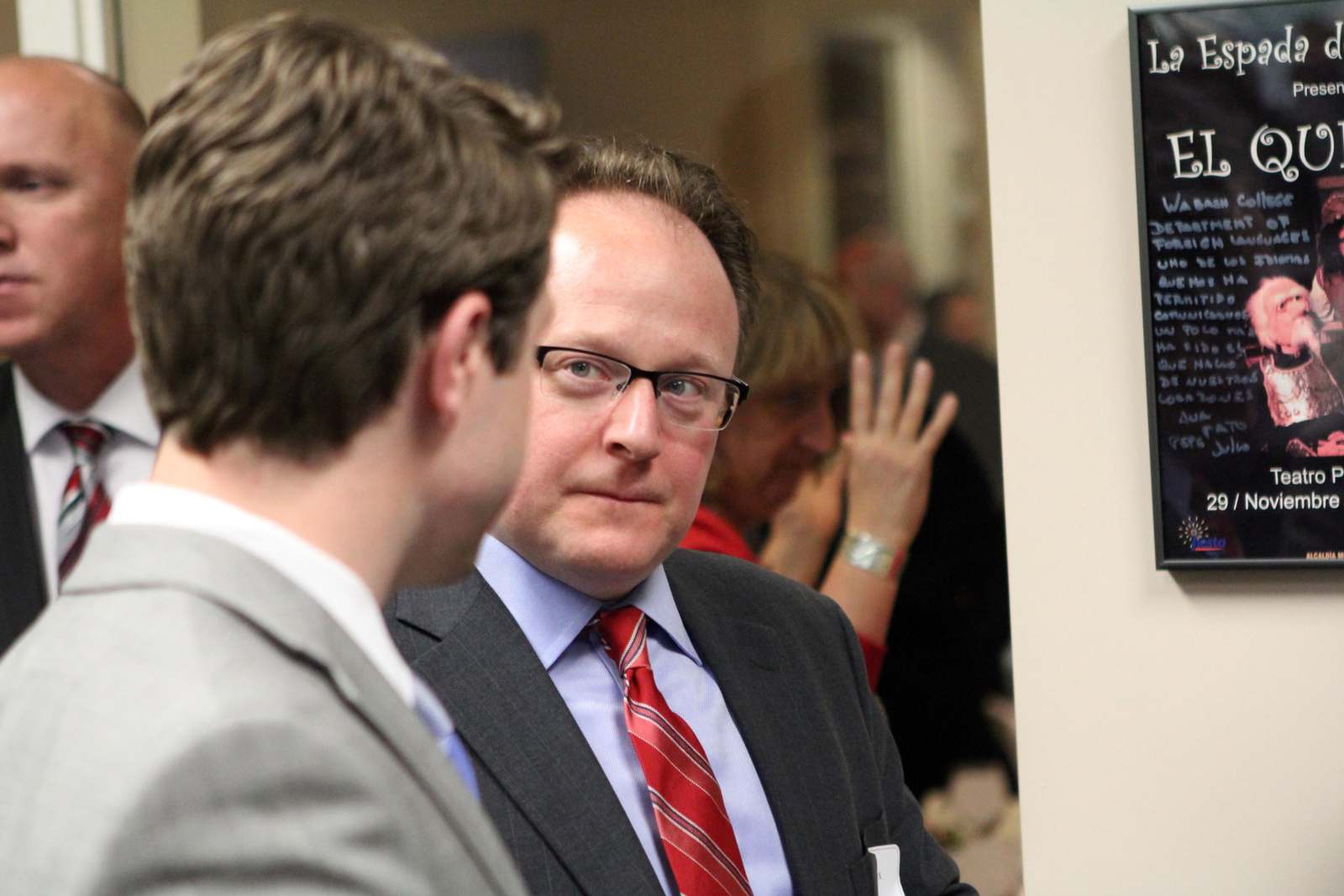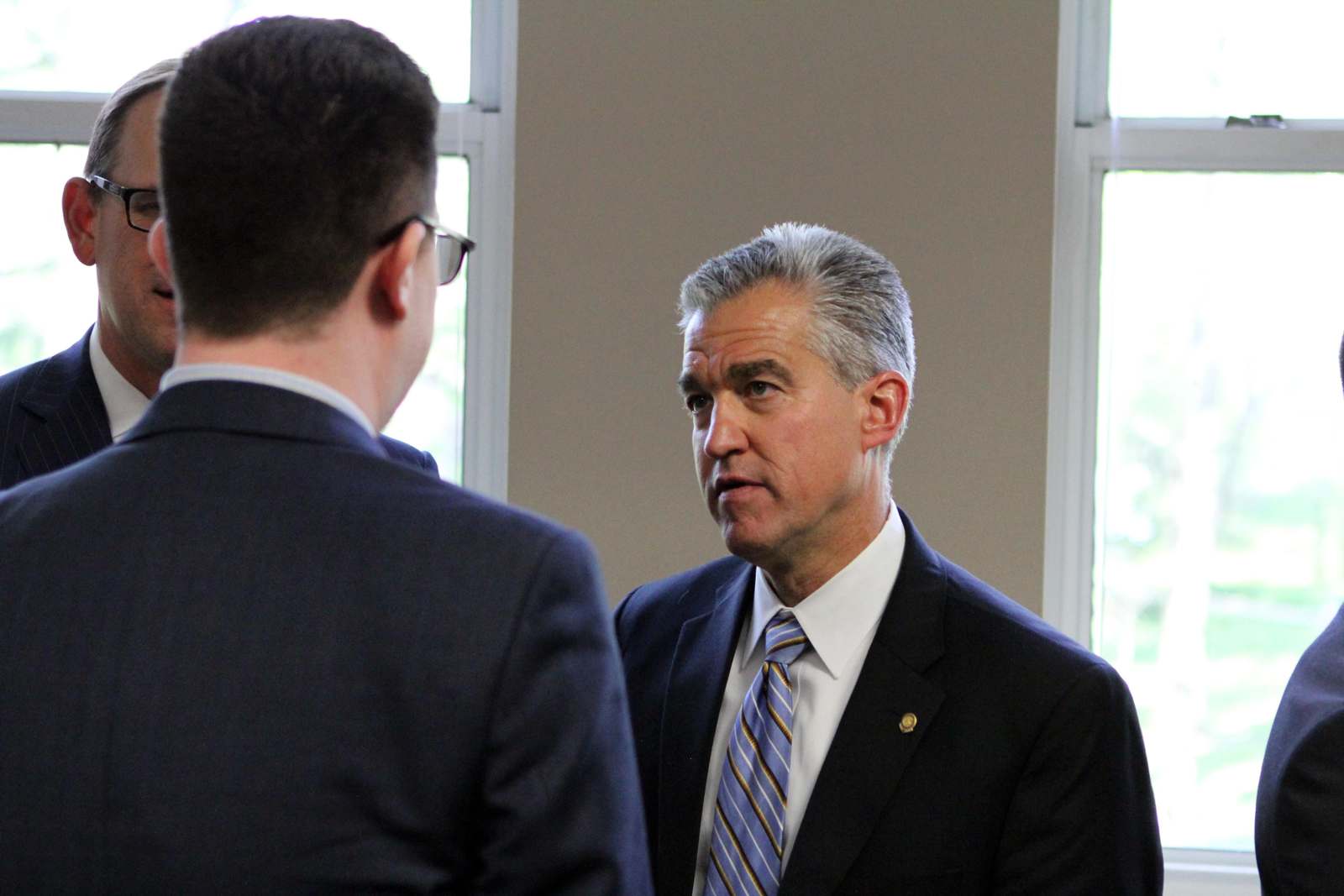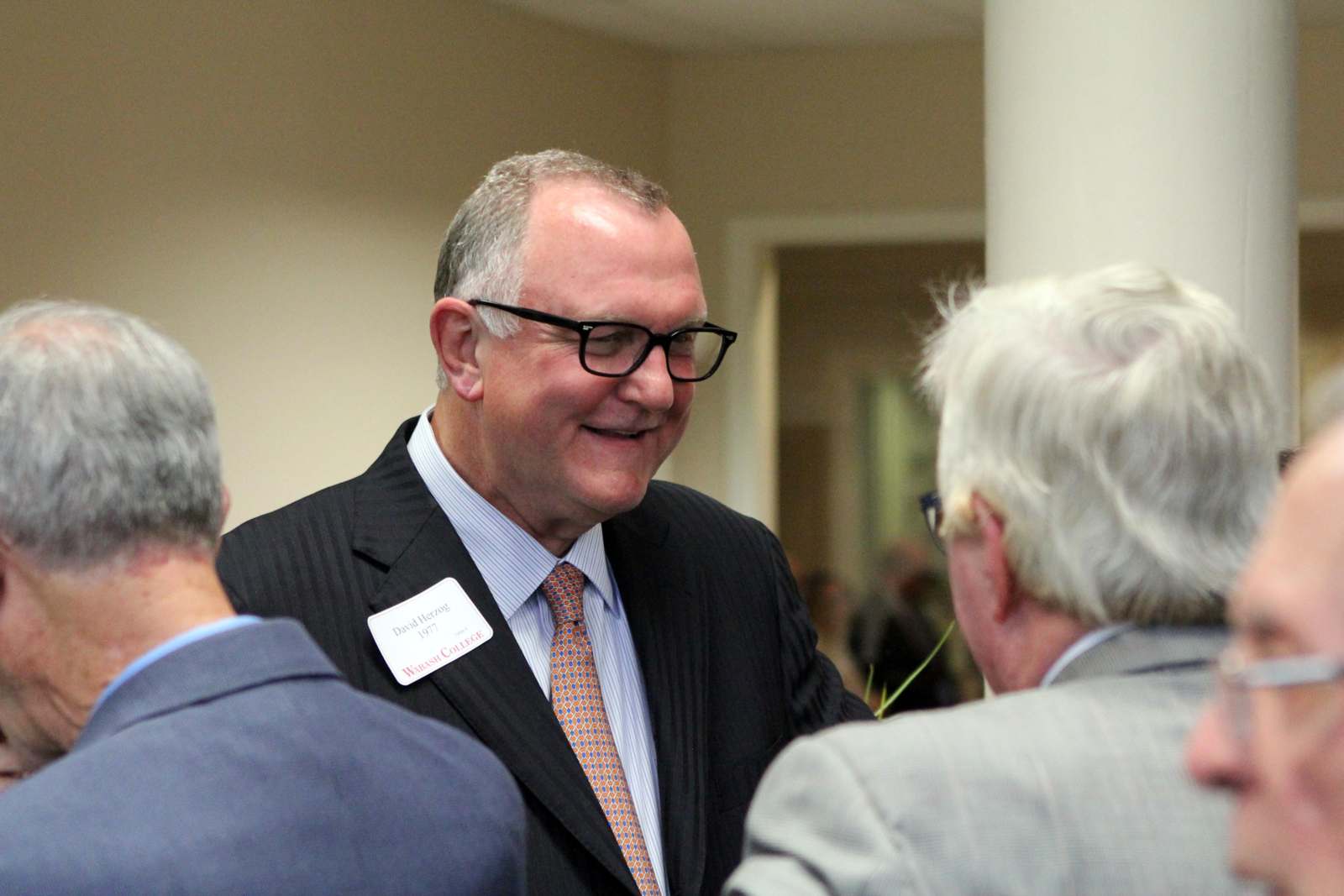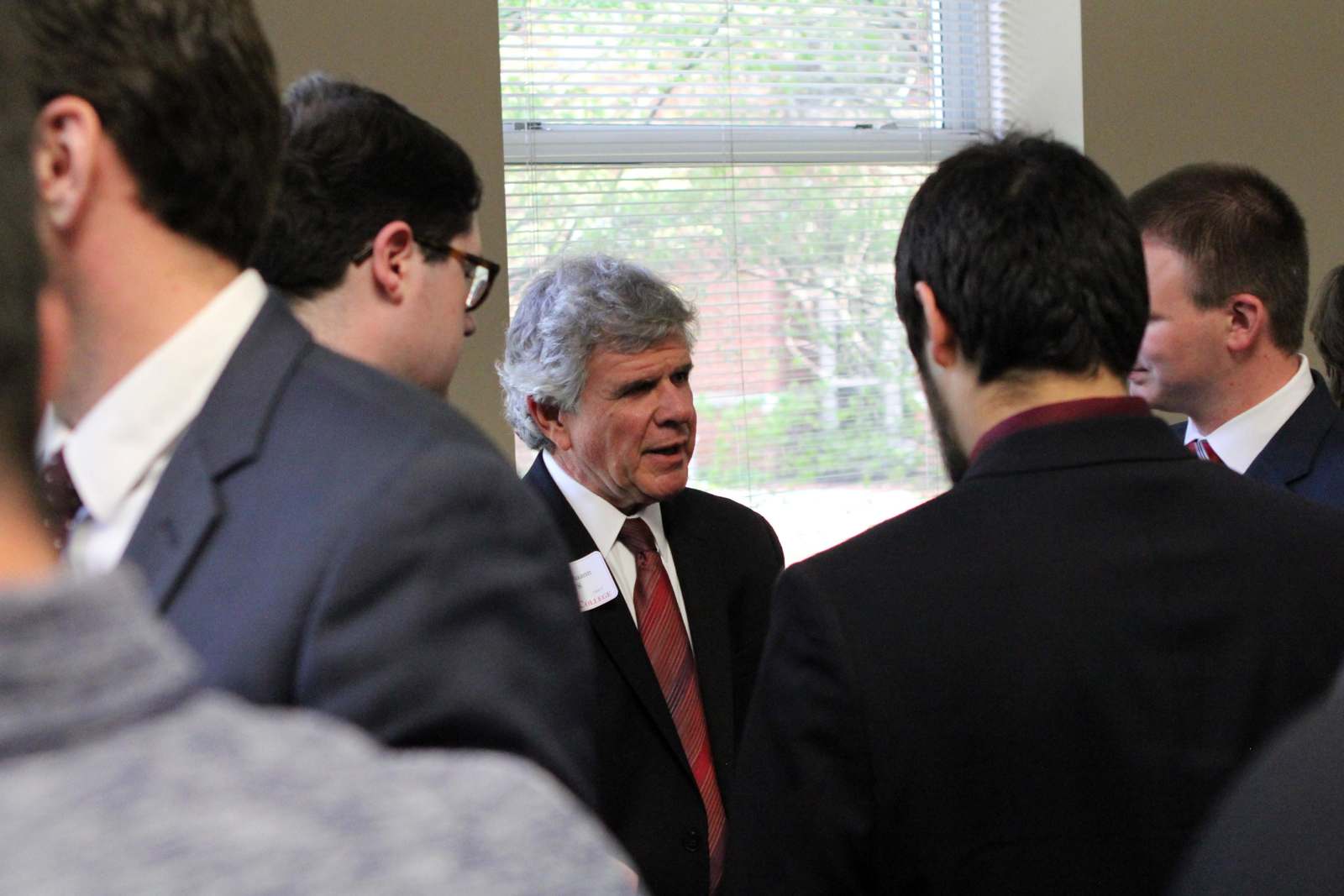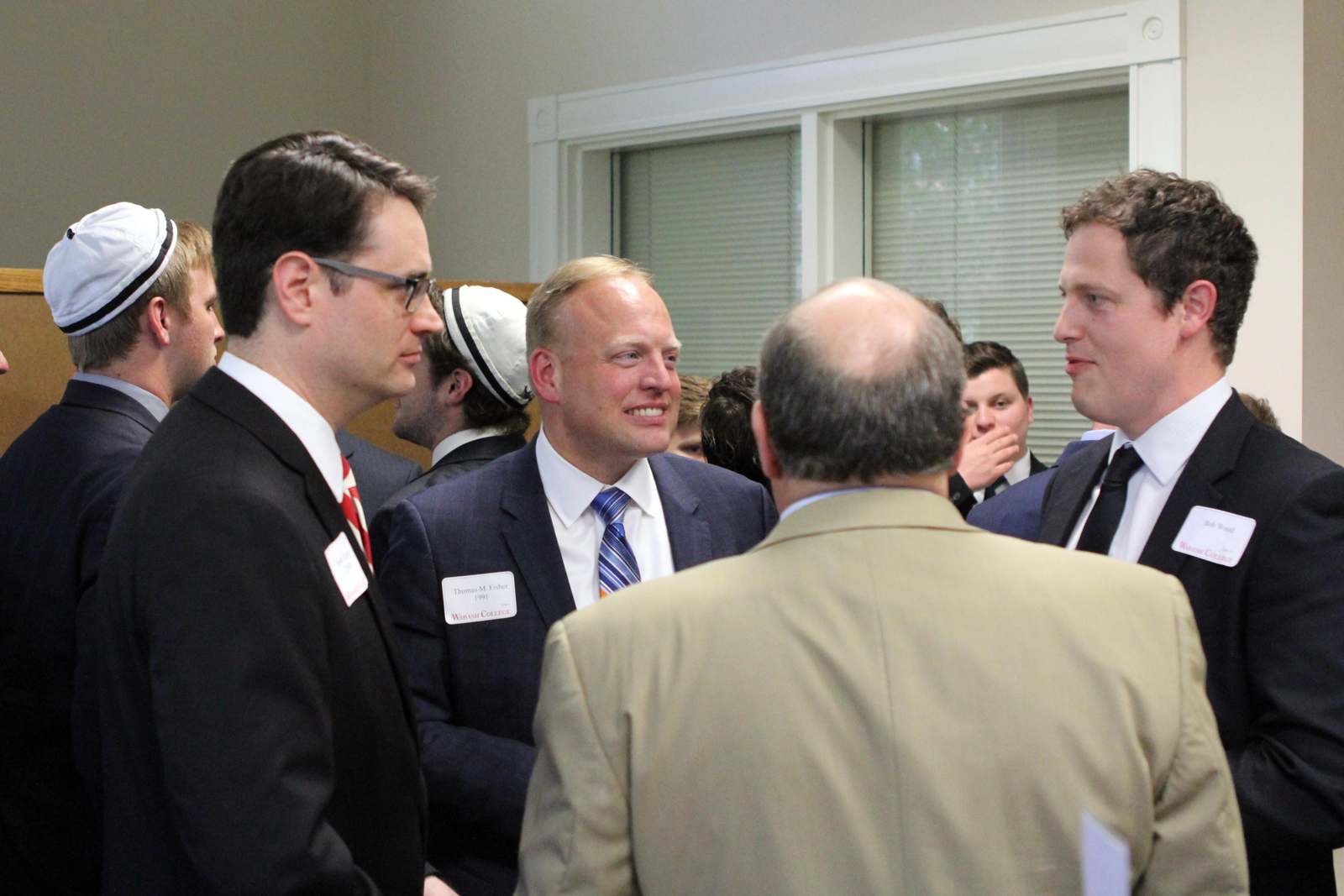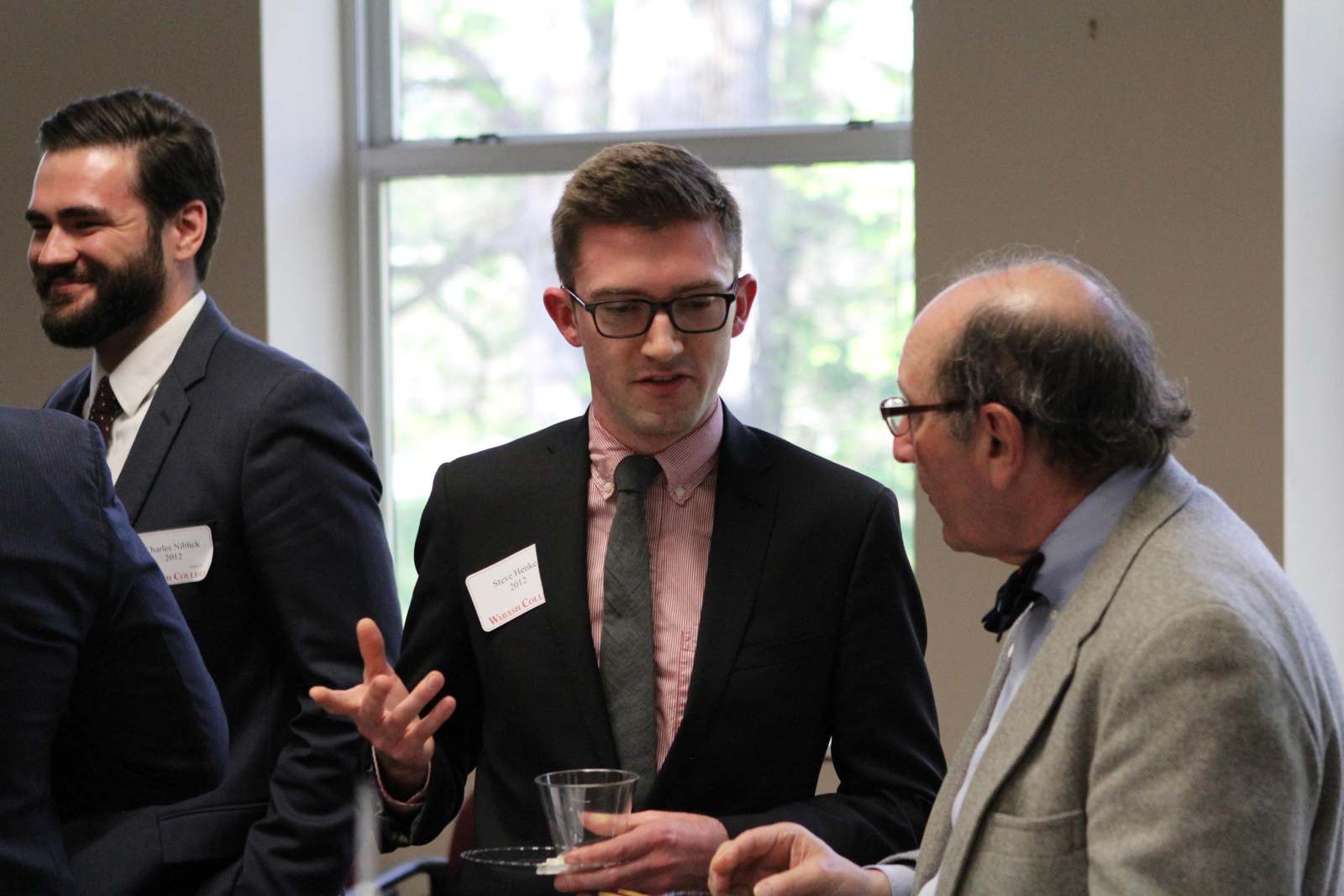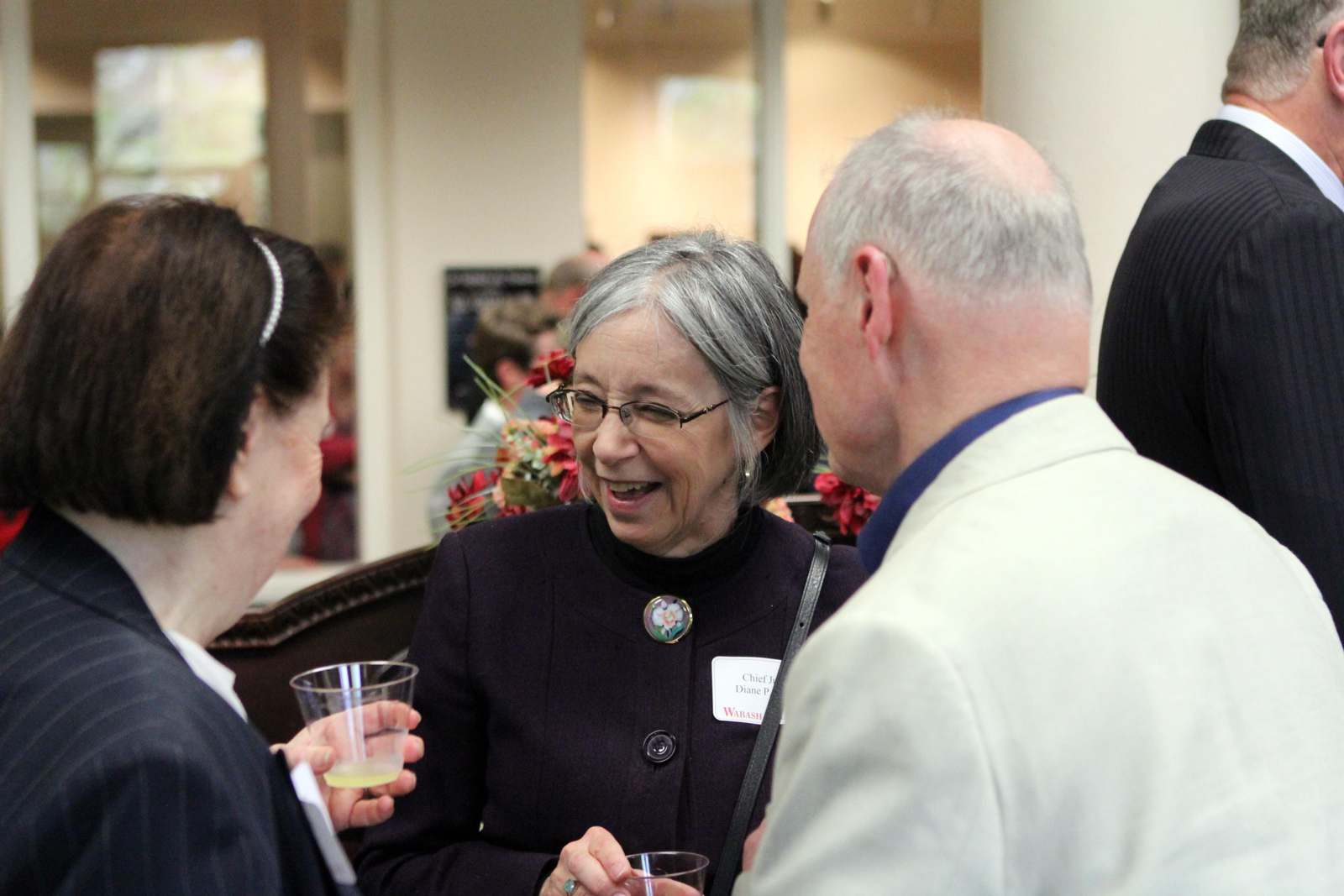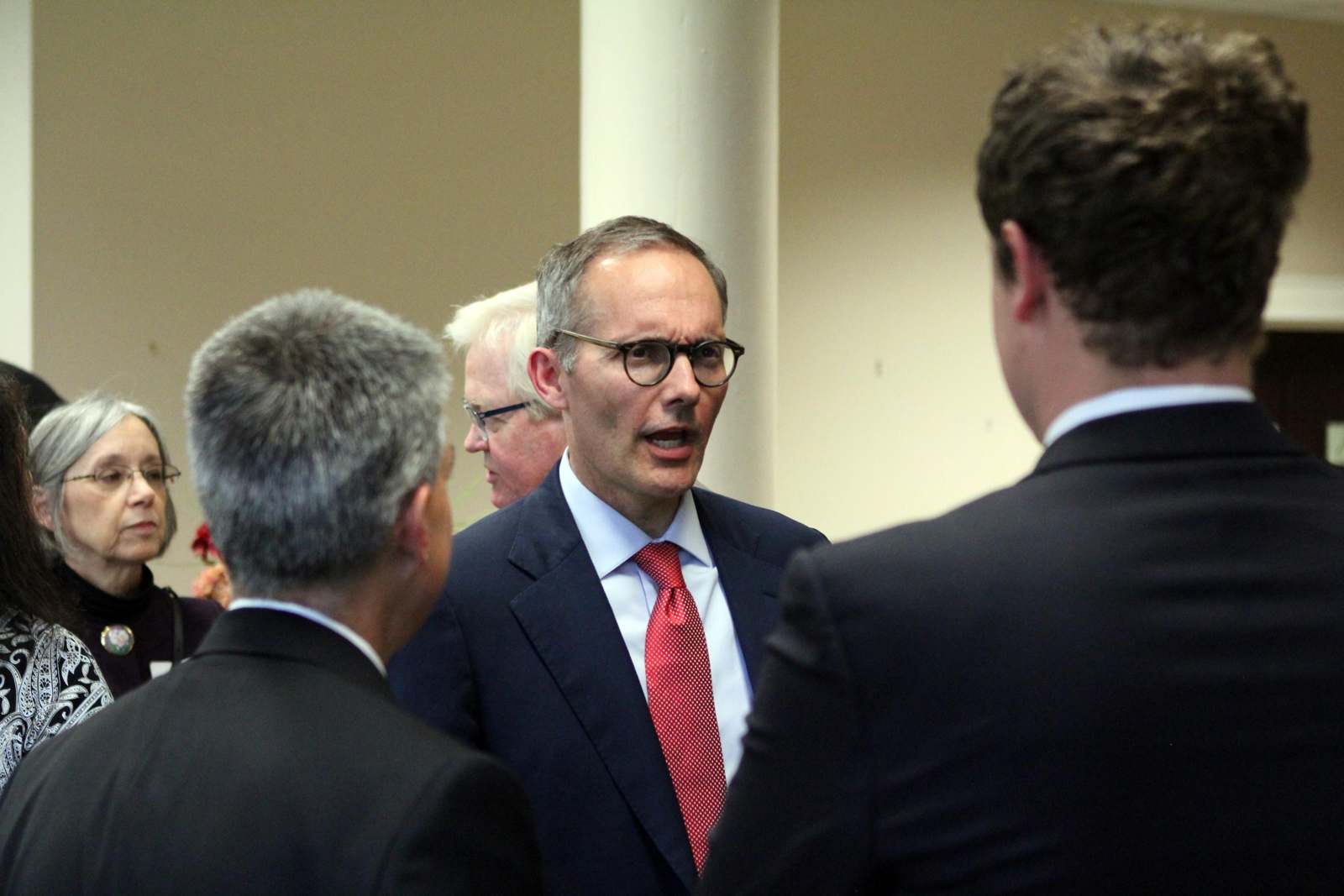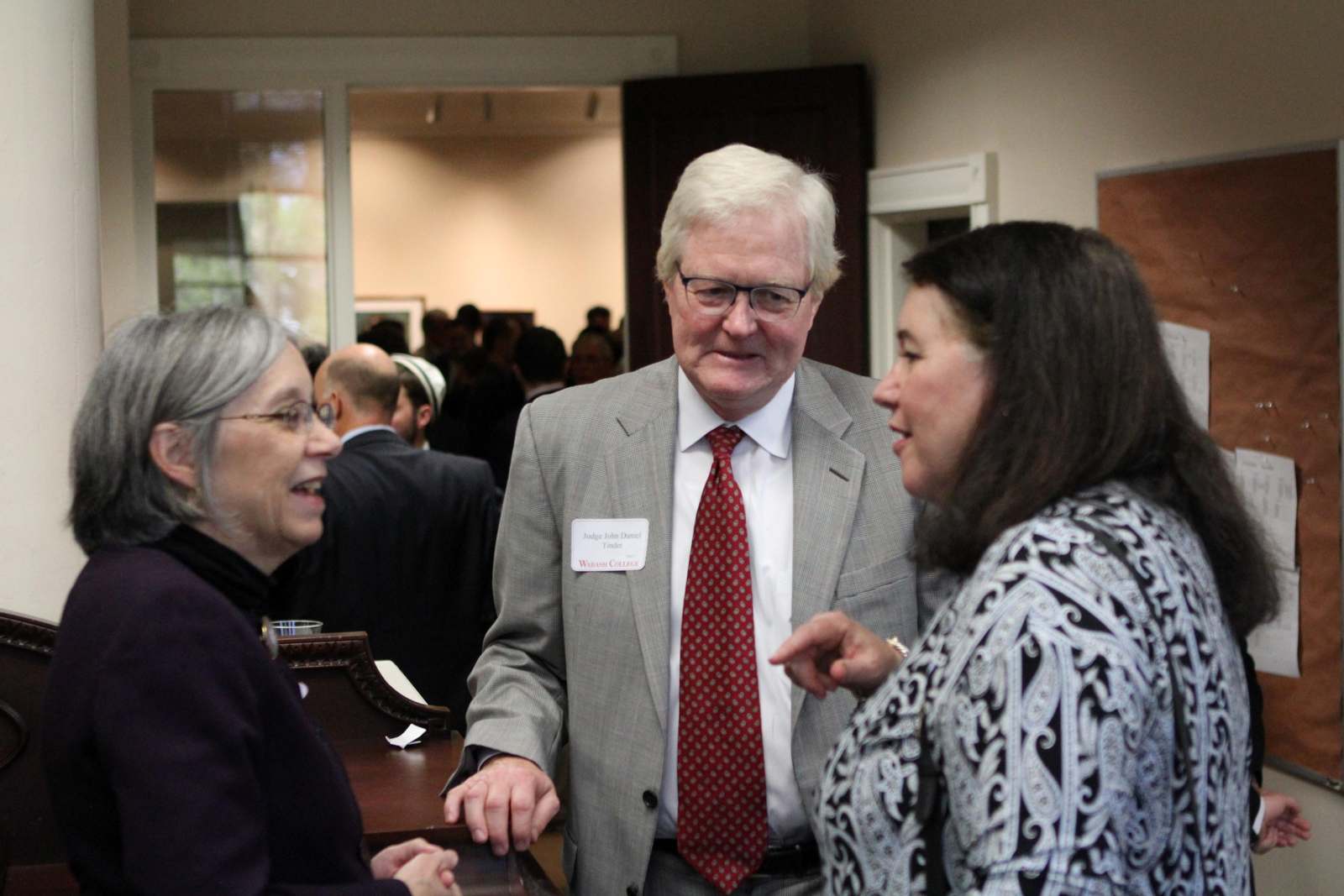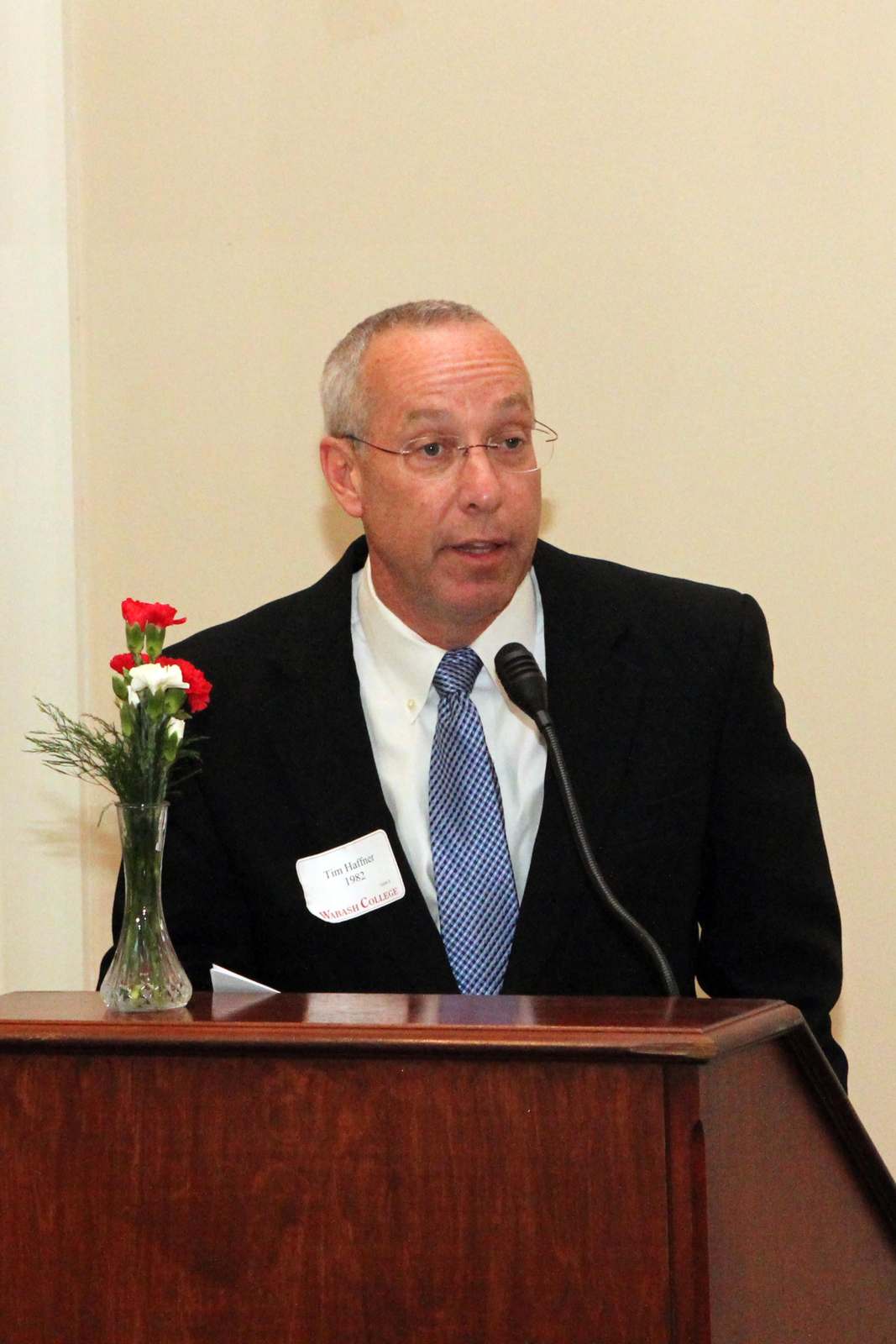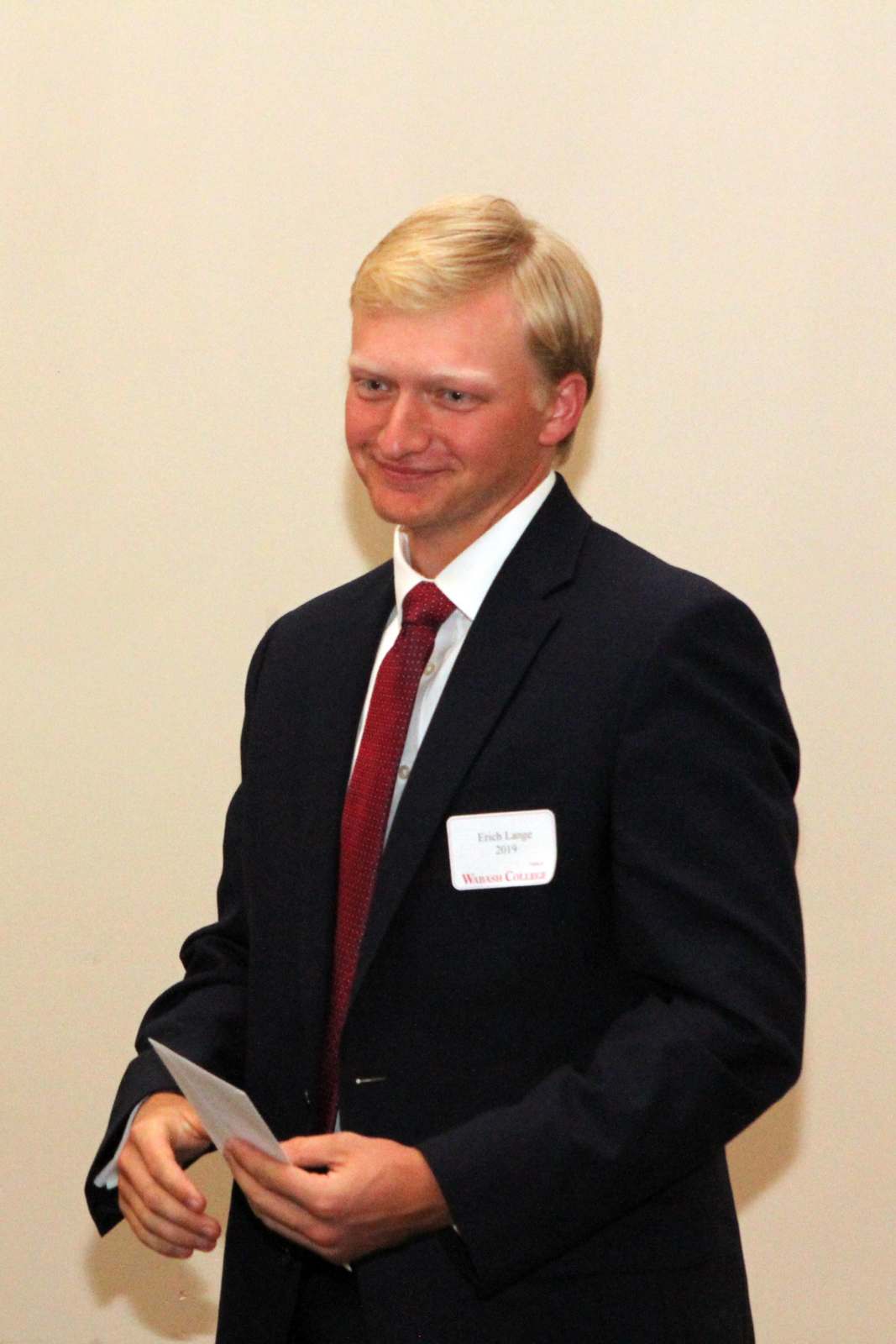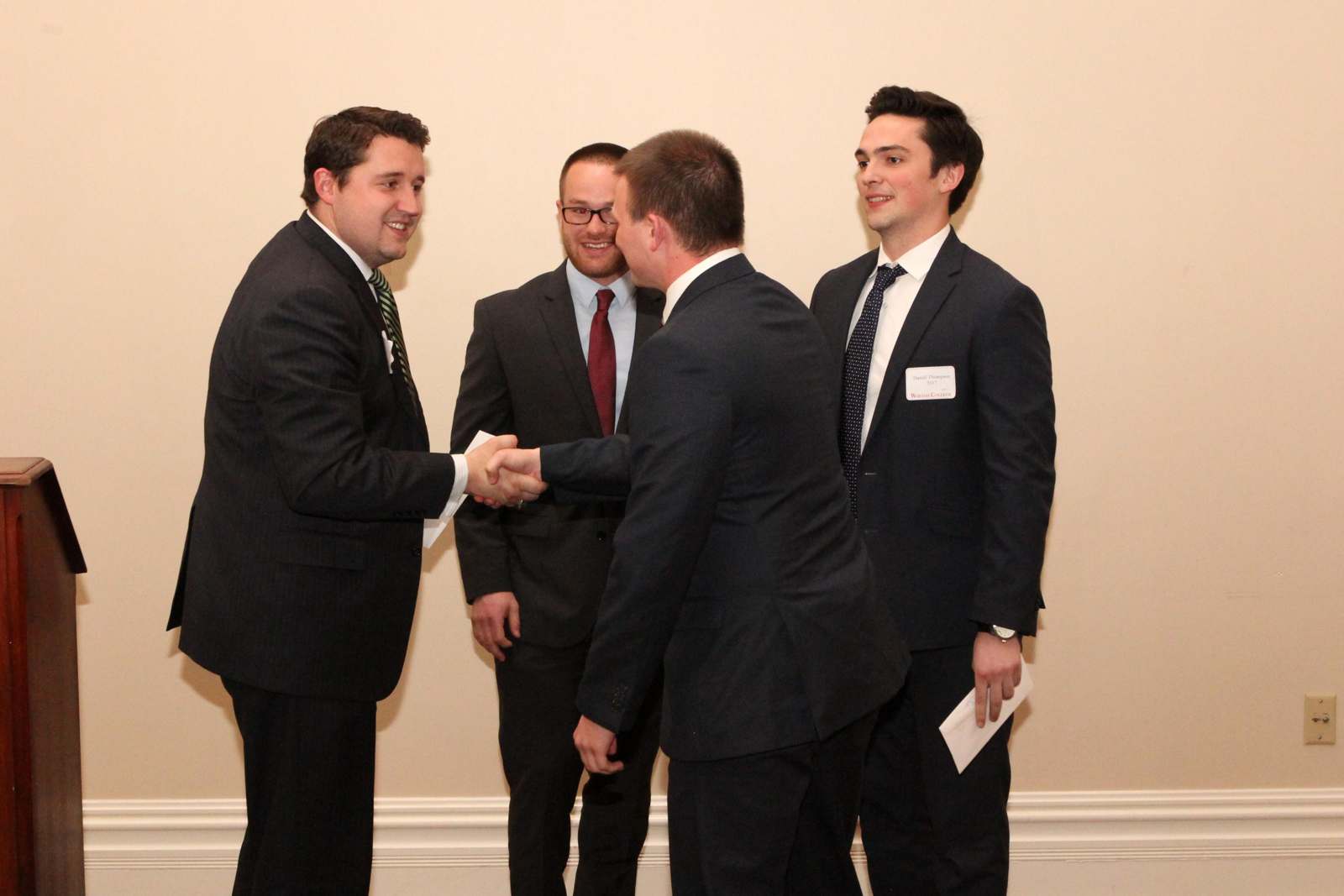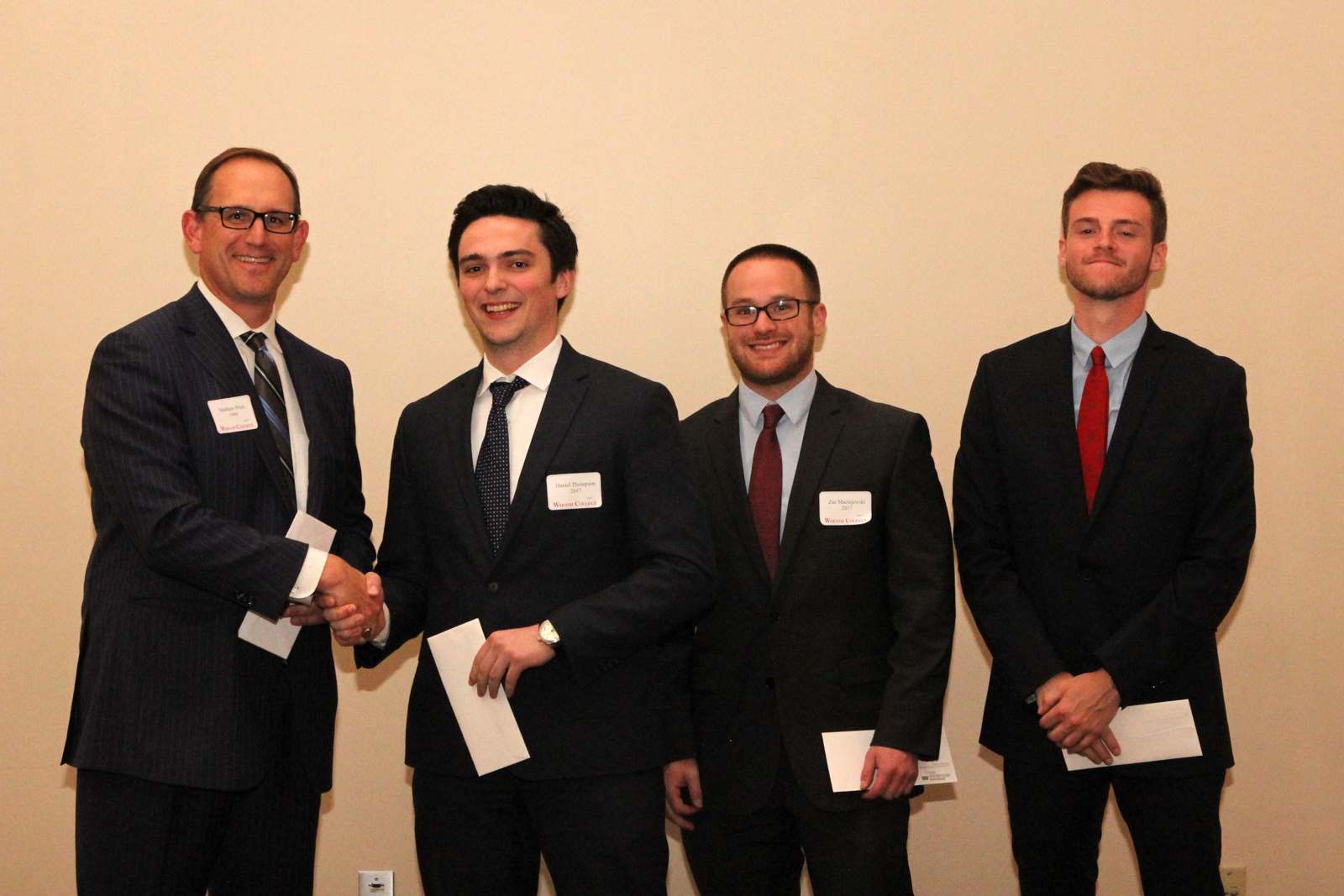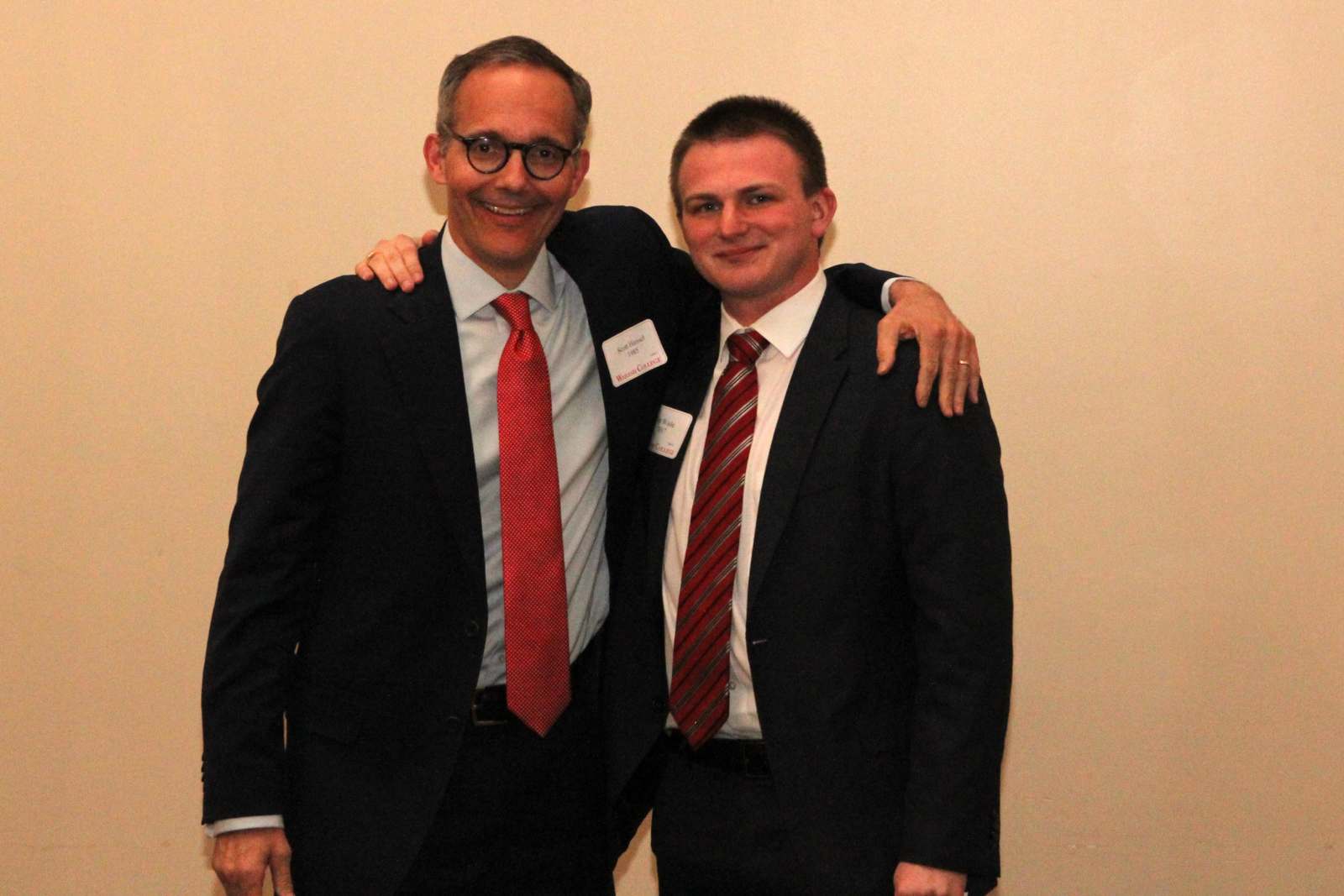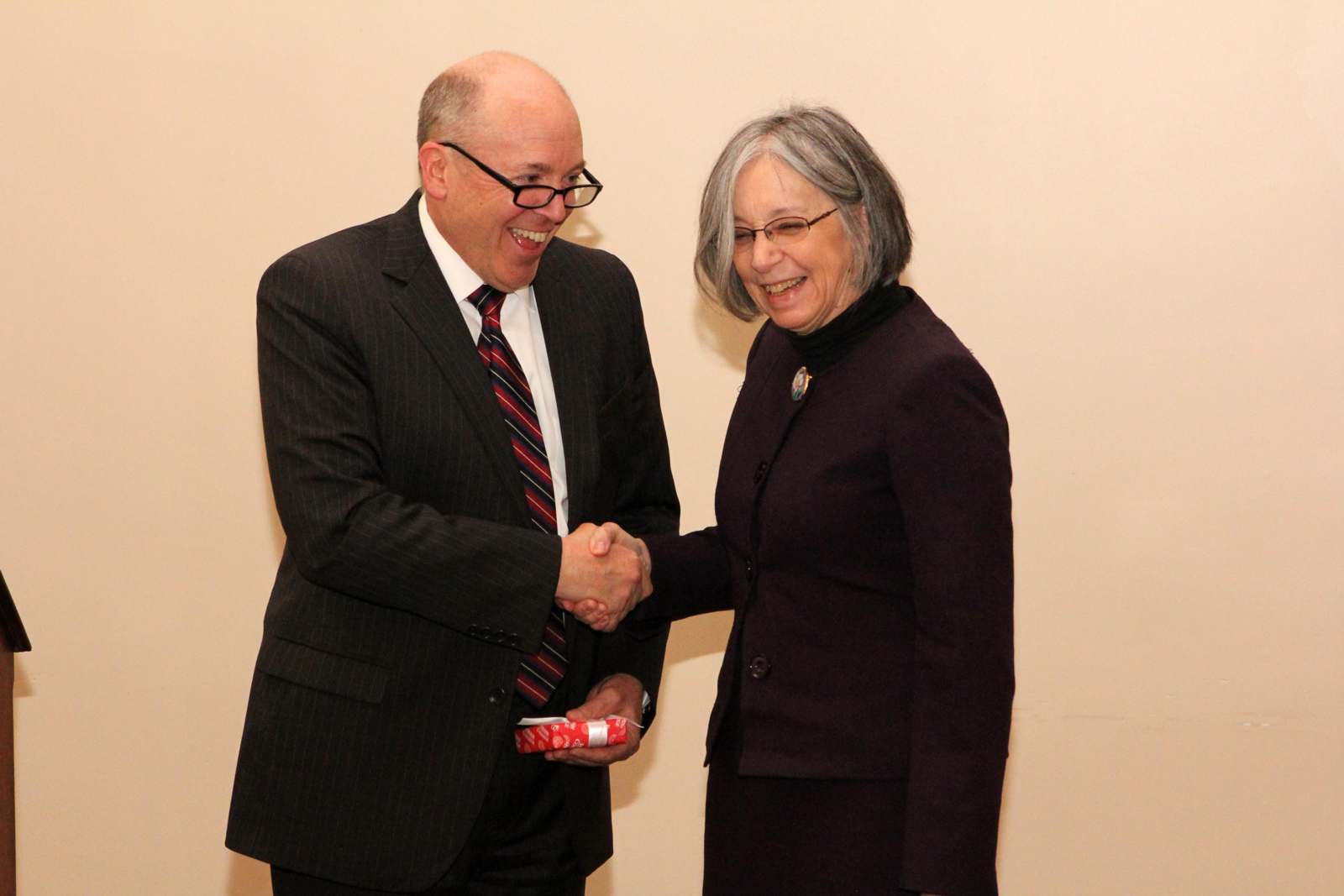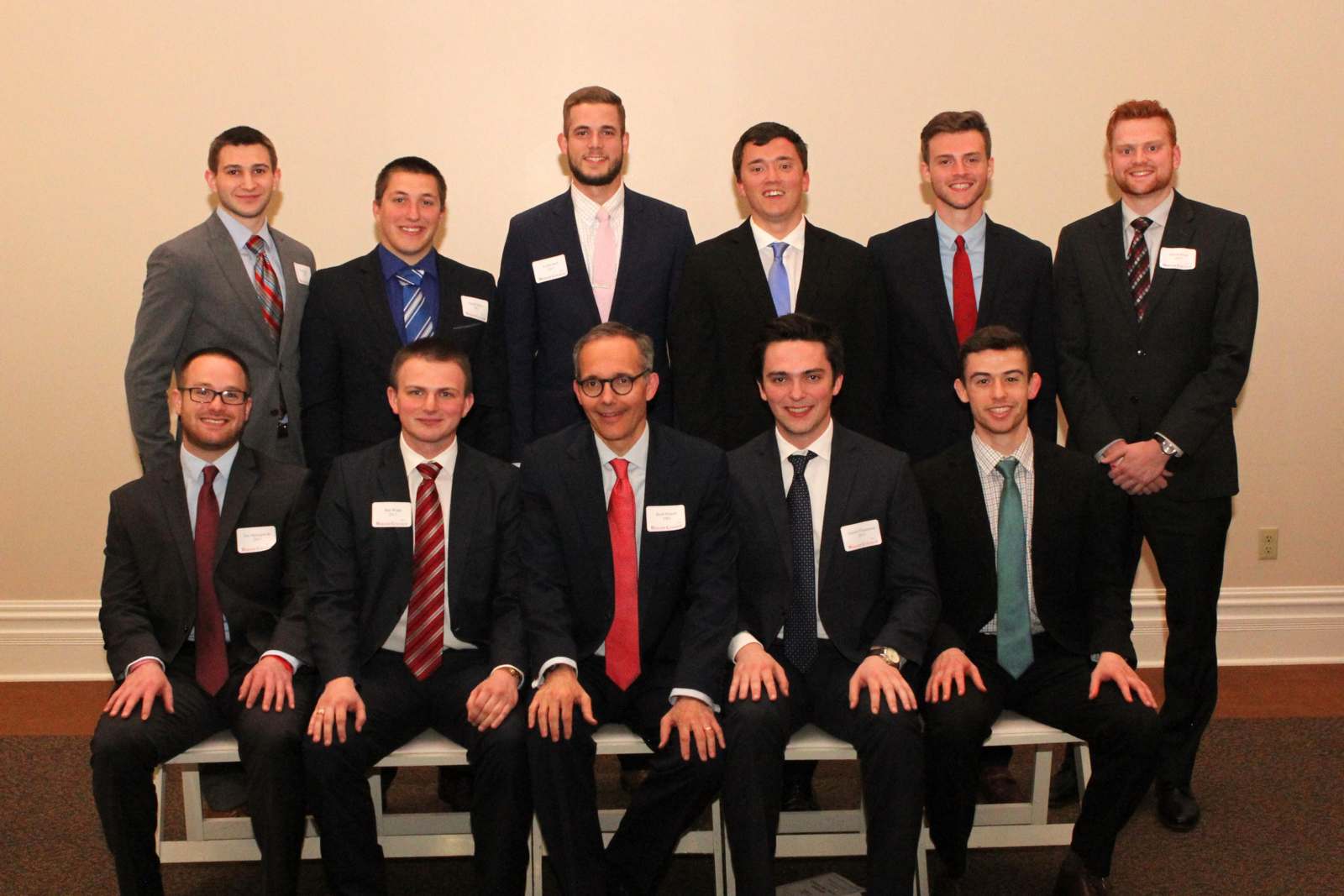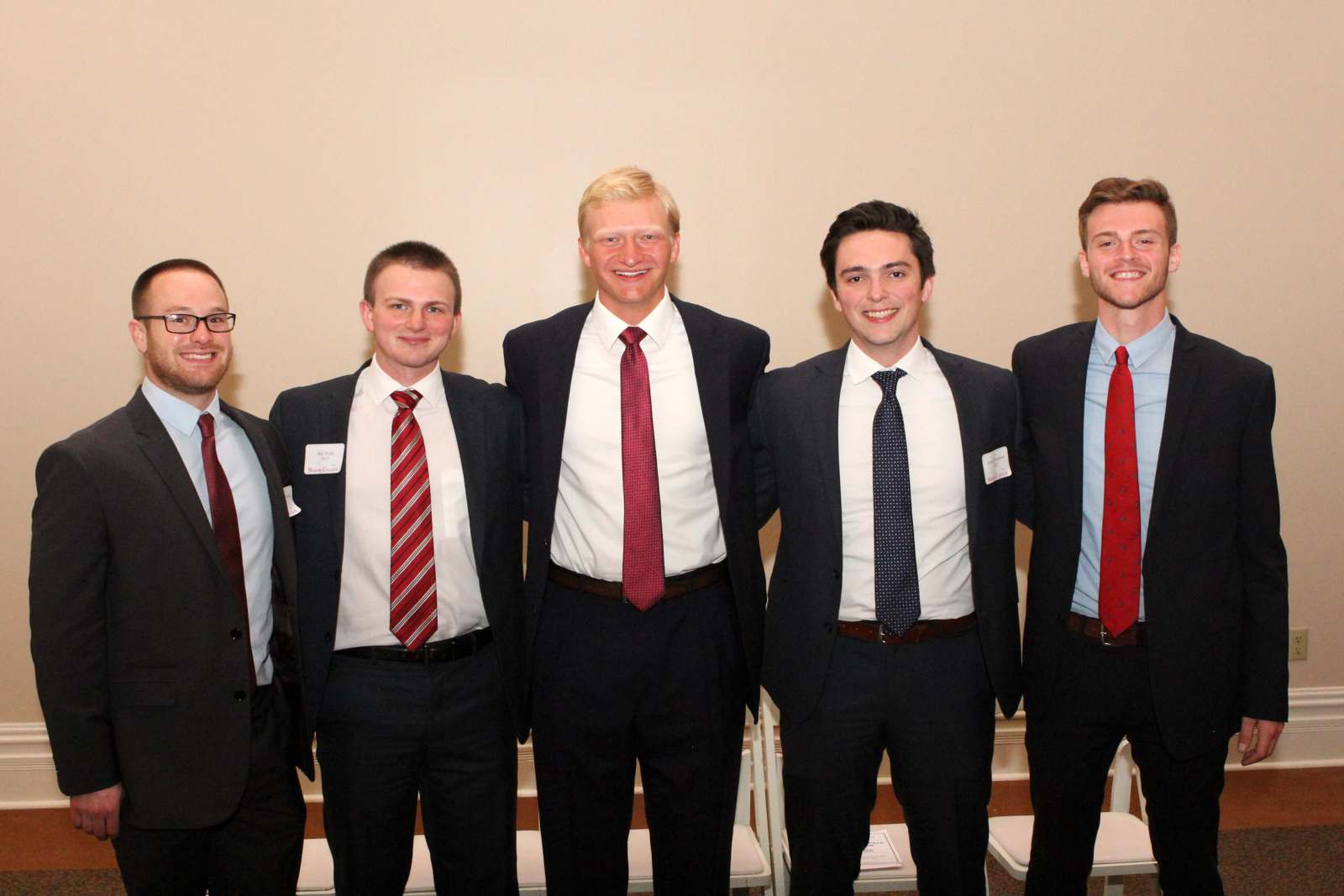2017 David W. Peck Awards, 4/24/2017
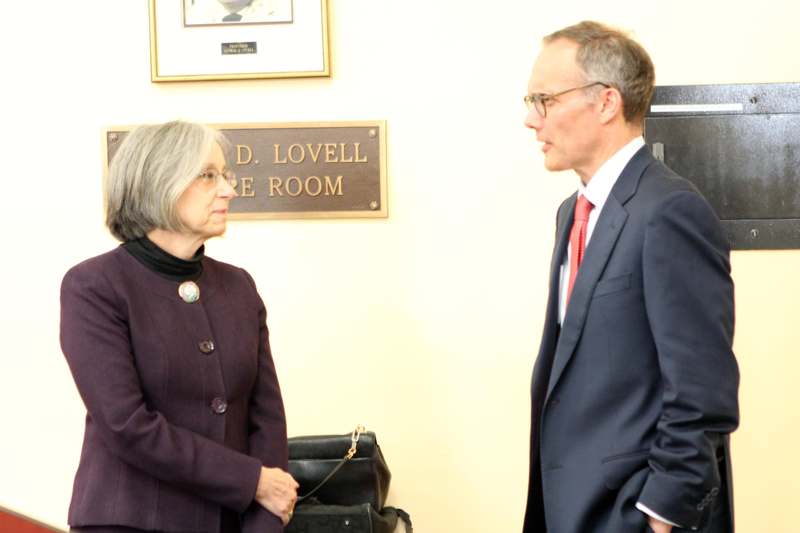
Chief Judge Diane P. Wood, United States Court of Appeals for the Seventh Circuit (left) chats with Associate Professor of Political Science Scott Himsel before Wood's lecture -- “Public Service and Private Initiative: An American Tradition” -- as part of Wabash College's David W. Peck awards program on April 24, 2017. Said Himsel in his introduction of Wood, who received the Senior Peck Medal, 'The Senior Peck Medal serves not only to recognize eminence in the law, but allows our college to recognize role models who show us how to live out our mission statement values of critical thinking and humane action. We can think of no more worthy recipient than our speaker tonight, Chief Judge Diane P. Wood.'
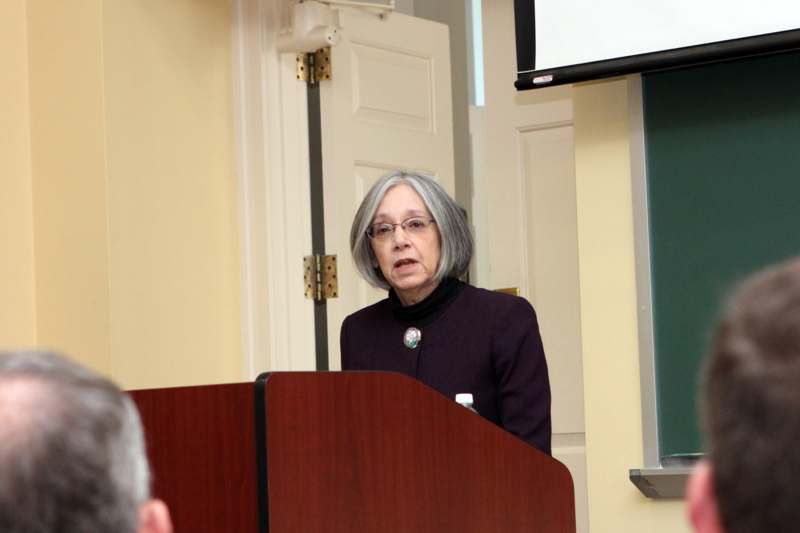
Said Wood, 'Thinking about the times today and thinking about the challenges that our country faces, I chose as my topic public service and private initiative because both have a very long and distinguished tradition in our country. What are we hearing now? We are hearing disturbing words like divisive, frightening, chaotic. You can barely turn on the news or pick up a newspaper without some sort of apocalyptic vocabulary hitting you. Actually, these aren’t words only being used to describe the United States. Today’s world is an unsettling place. There is a sense of real angst that’s out there.'
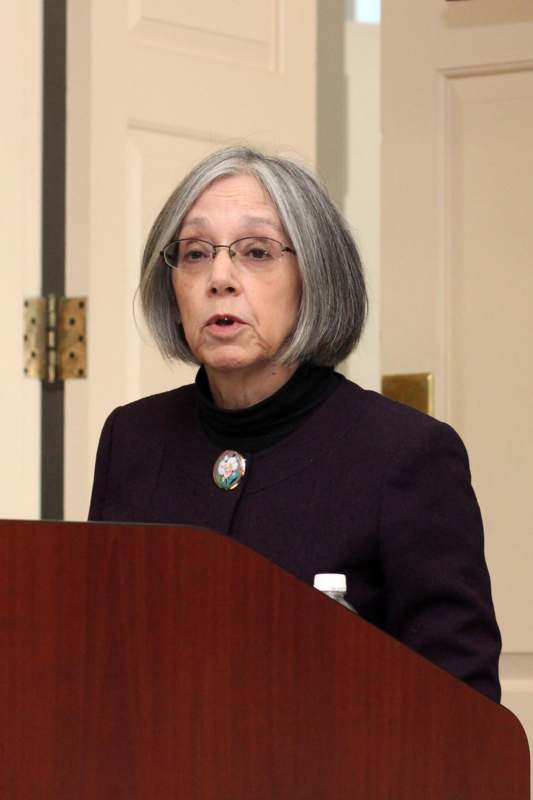
'It’s worth remembering that this election (in 2016) was not the first one, and it's not going to be the last one, that left many people feeling unheard, unimportant, alienated, and dissatisfied with the political system in which they live. We’ve seen this from many sides and we’ve seen this before. Is it like William Butler Yeats described, has the center collapsed, and if so, is it like Humpty Dumpty, and can we put it all back together again?,' Wood asked the audience assembled in Baxter hall.
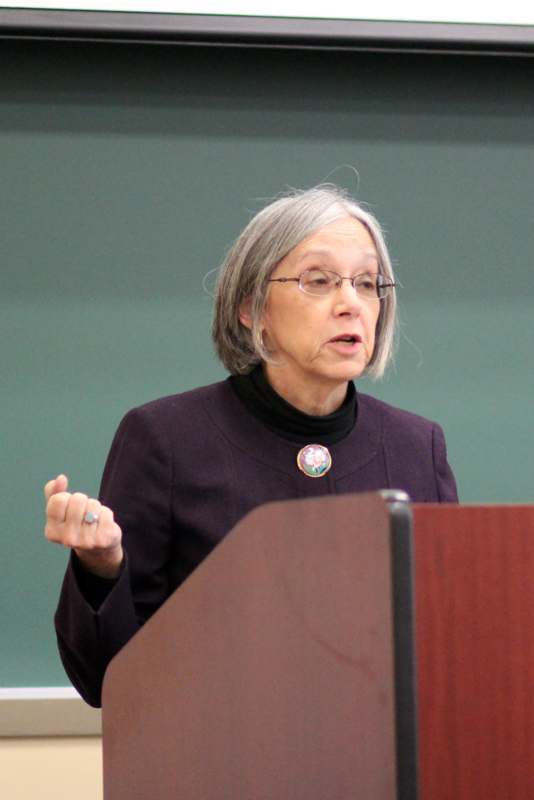
Wood said later at the awards reception in Detchon Center's International Hall, 'I thought the law was the place where one could really engage with life and the problems we have. I will say that for those of you who are students going on to law school, that a broad, liberal arts education is really the best preparation you could possibly have.'
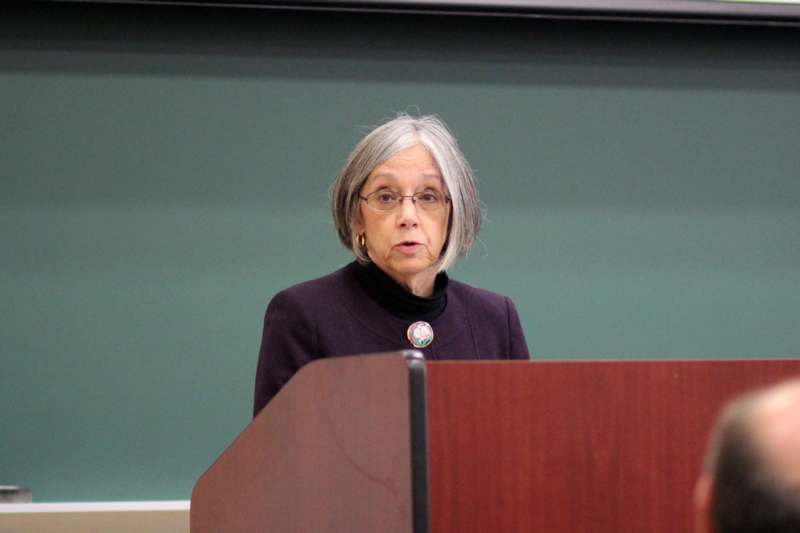
Wood spoke highly of a liberal arts education, saying, 'It doesn’t make any difference, as far as I can tell, whether you are a history major, political science, English, or whether you study Anthropology, whatever it is you are doing in a place with an atmosphere of open inquiry and exposure to as many different ways of thinking that you can be exposed to, the habit of courteous debate with people who see the world differently than you do, that’s what we need.'
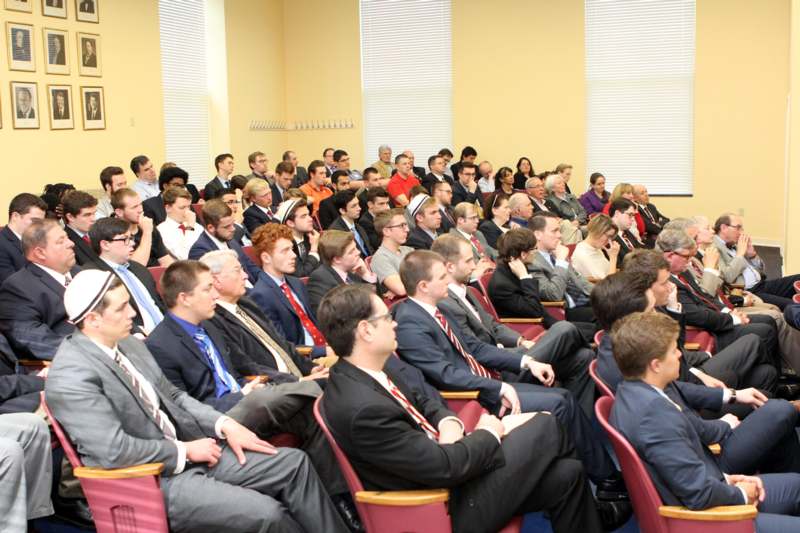
She also mentioned a need for intellectual versatility: 'We need people in the law like that, and we need them more than ever because the rate of change in the world does nothing but increase. The kinds of things you are studying today are not going to be the problems even when you graduate from law school, much less 15 or 20 years out. It’s a changing world and you need that intellectual versatility the liberal arts give you. You need the ability, not just to keep up with the changes, but to keep several steps ahead of them if you can.'

